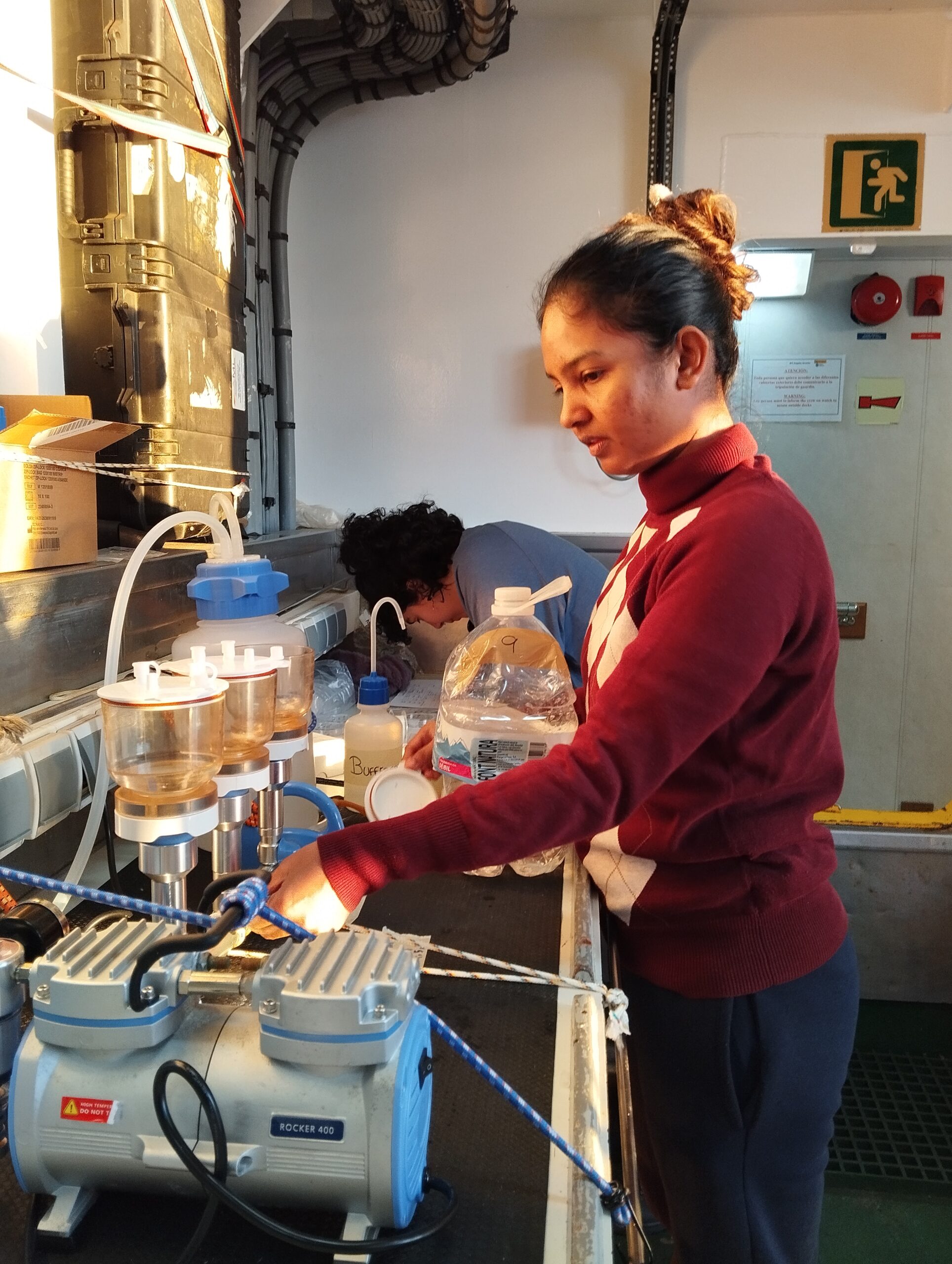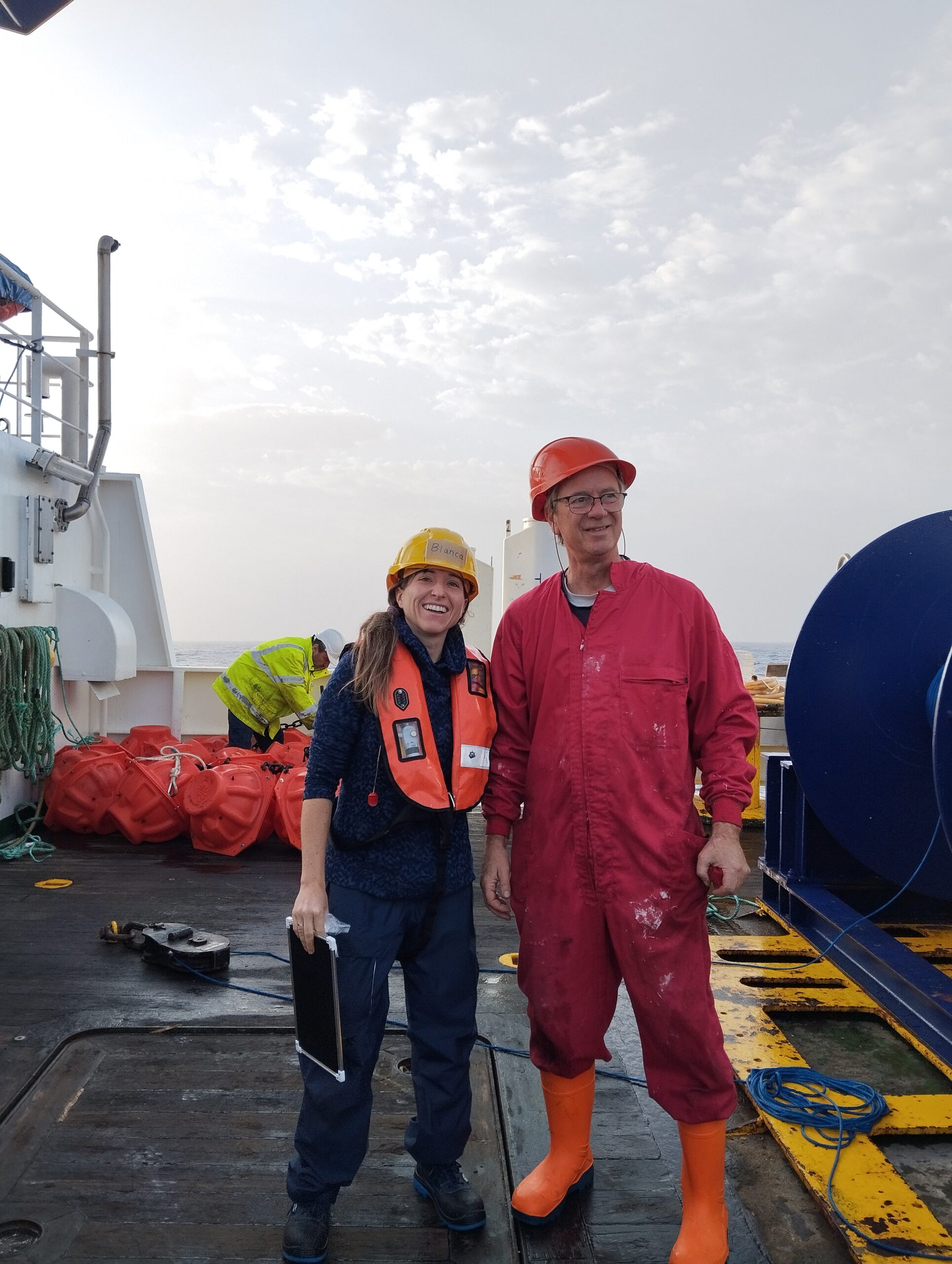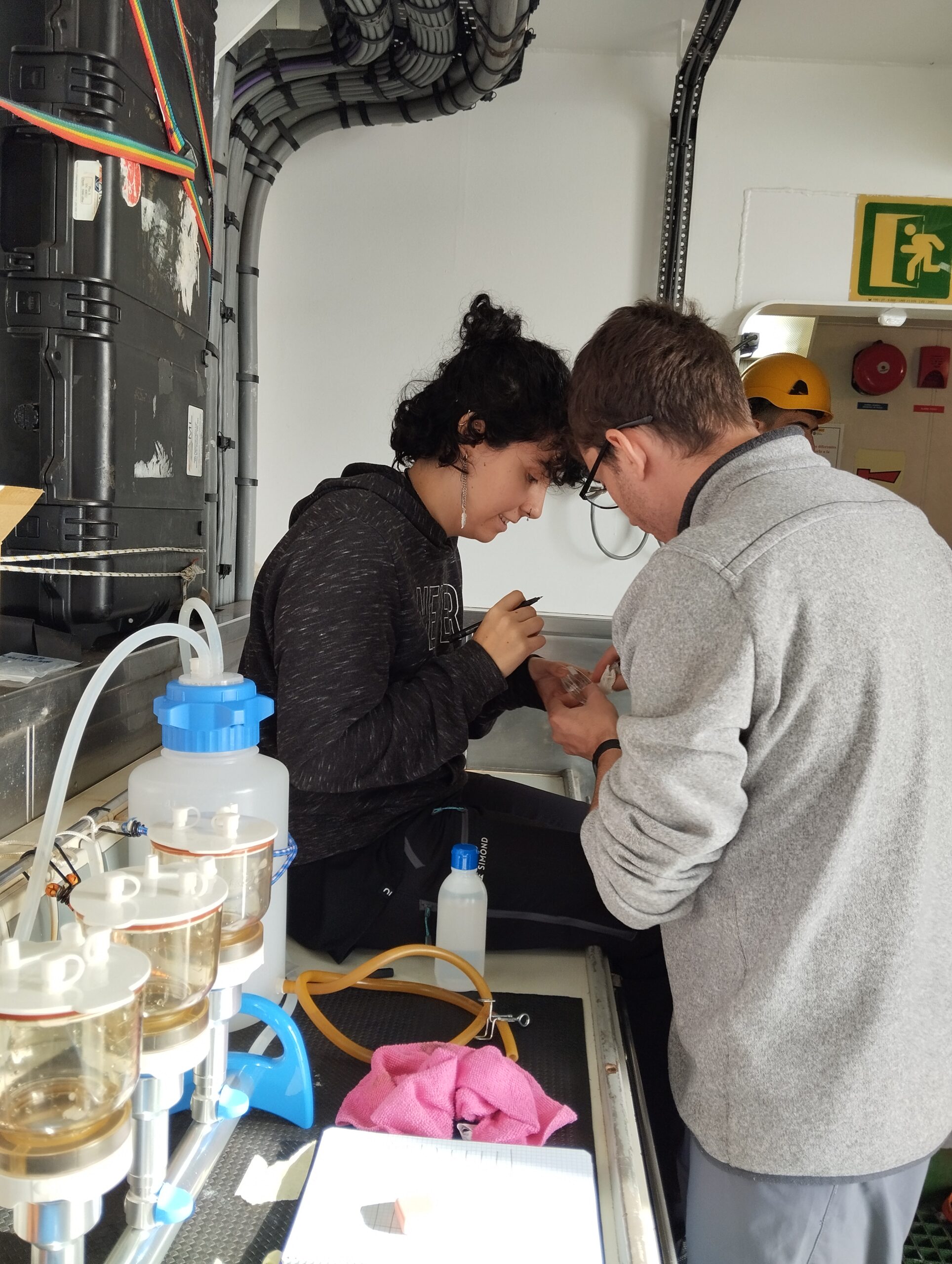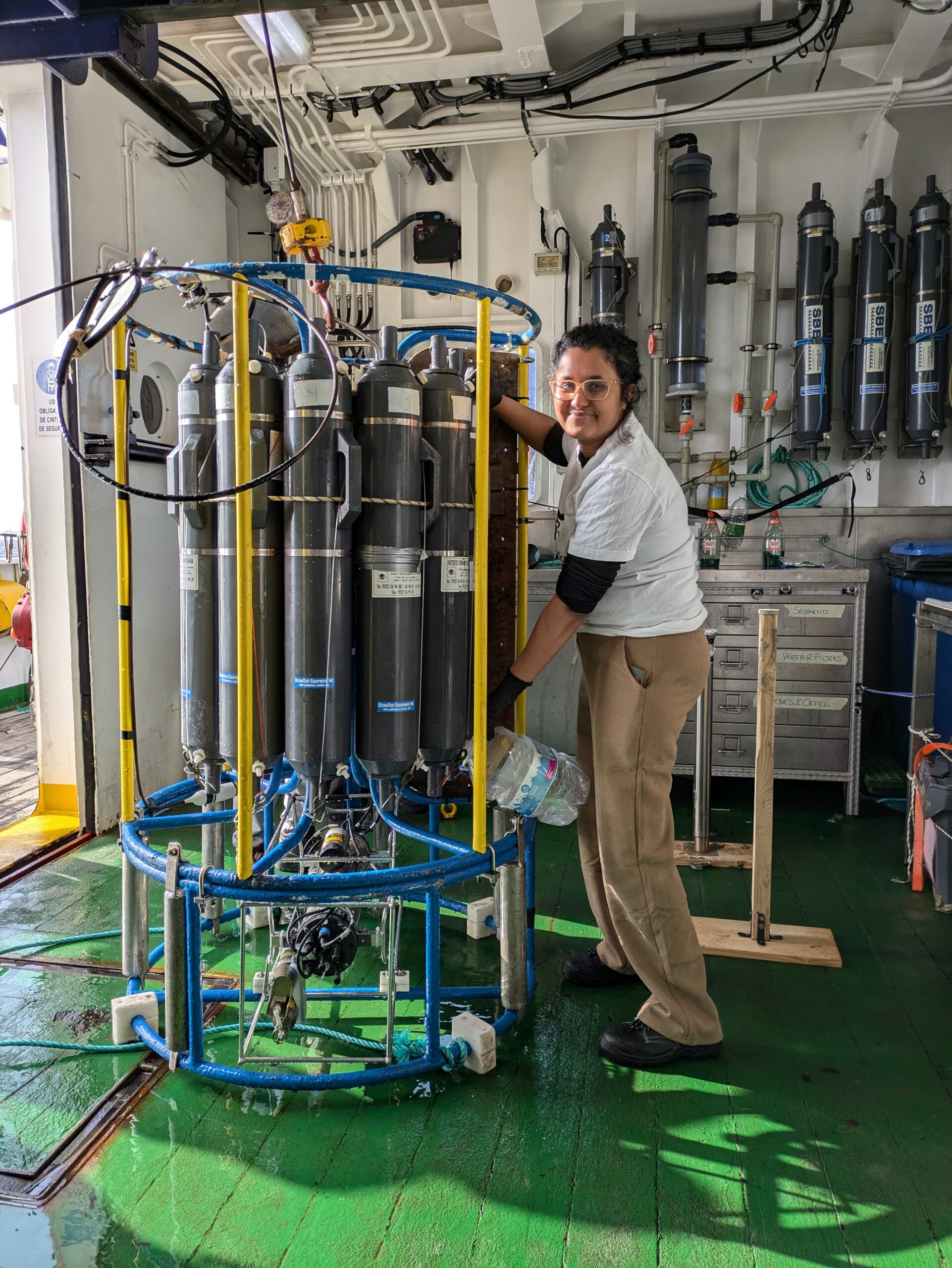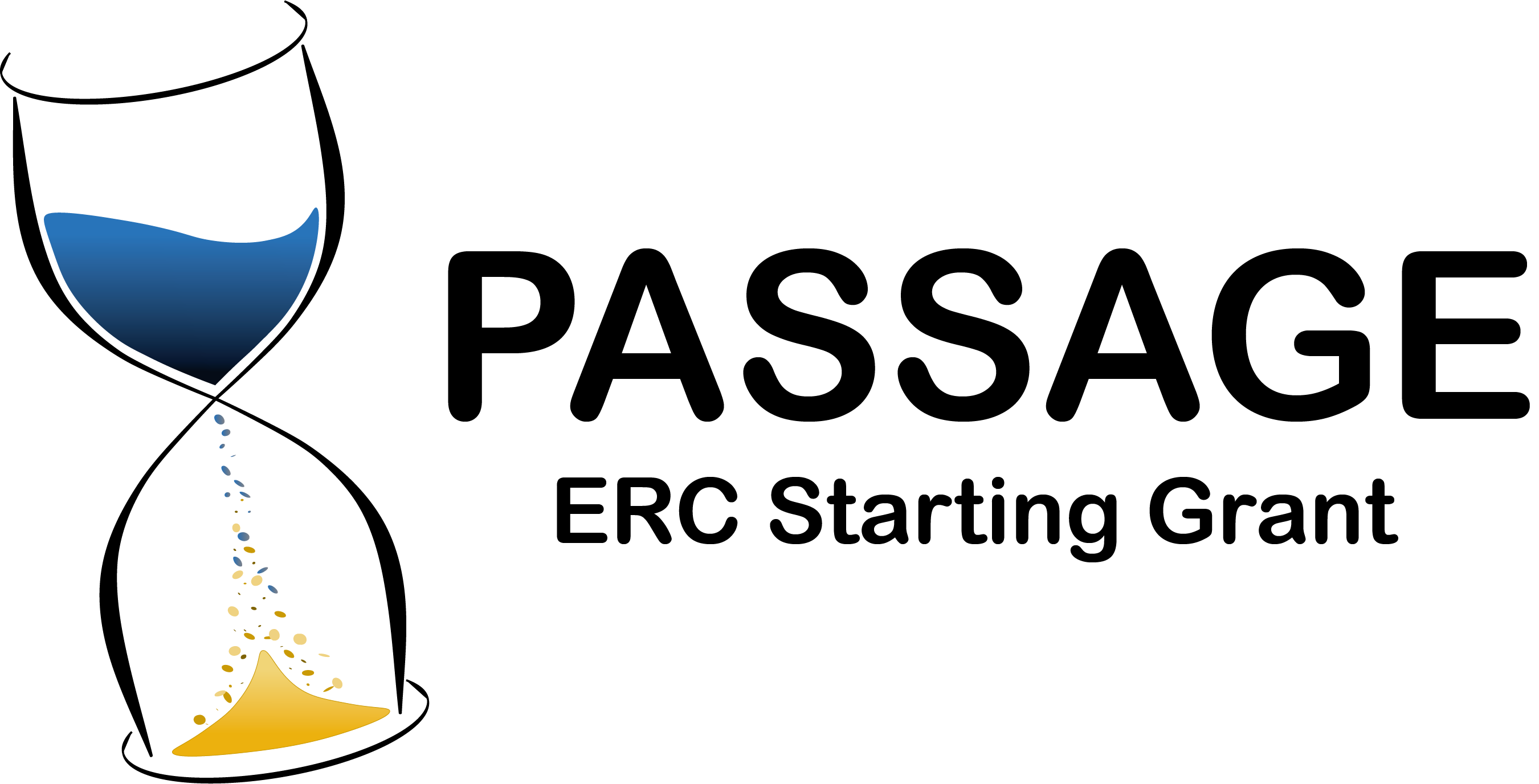Fieldwork
Video Credit: Thibauld M. Béjard
Study area and sampling program
Our primary study area is the SW Iberian margin. This region has played a pivotal role in our understanding of short-term climate variability since Sir Nicholas Shackleton and colleagues demonstrated climate signals recorded in Arctic and Antarctic ice-core records could be respectively recognized in oxygen isotopic records of surface and deep water masses from sediment sequences retrieved at the SW Iberian Margin.
PASSAGE is based on an integrative approach, which explores processes from the surface ocean to deep-sea sediments.

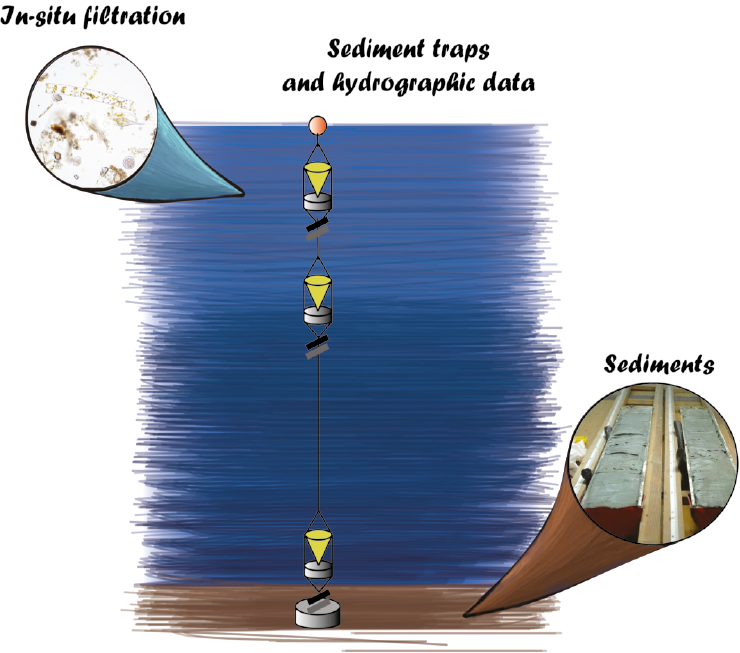
The sampling program strategized here aims at collecting suspended particulate material (via in situ pumping/filtration), settling particles (via sediment trap), and surface sediment samples (multicores) during several cruises planned a few months apart.
We will also deploy, for the first time in the SW Iberian margin, two mooring lines located in a longitudinal transect of the continental slope. Each mooring will host 2 and 3 sediment traps, respectively, and multiple current and turbidity meters and temperature and salinity sensors to intercept and characterise specific subsurface, intermediate and bottom water masses.
Our first adventure... PASSAGE23 Cruise
The PASSAGE23 Scientific Crew embarked from the port of Cádiz on the 17th of November 2023, on a 7-day mission to deploy two mooring lines and collect surface sediments and water from the Iberian Margin in the Atlantic Ocean.
During our first cruise, PASSAGE23, we deployed two mooring lines with two sediment traps each and several hydrographic sensors to measure temperature, salinity, turbidity, and current speed for 12 months. We also sampled surface sediments along and across the slope, measured CTD profiles, and filtered water.
PASSAGE23 has established the basis for the first sediment-trap study implemented in this region. The 1-yr sampling performed by the two mooring lines will allow us to discern between the influence of along- and down-slope transport mechanisms, coastal and offshore processes, and nepheloid layers associated to specific water masses, on the transport of the different components.
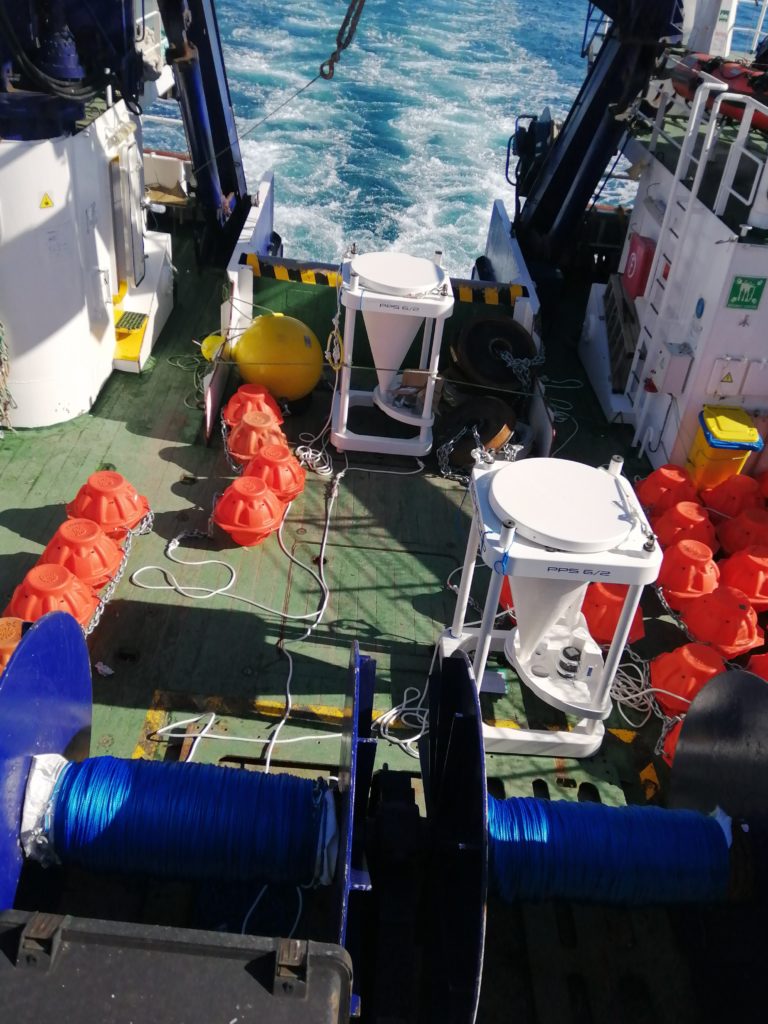
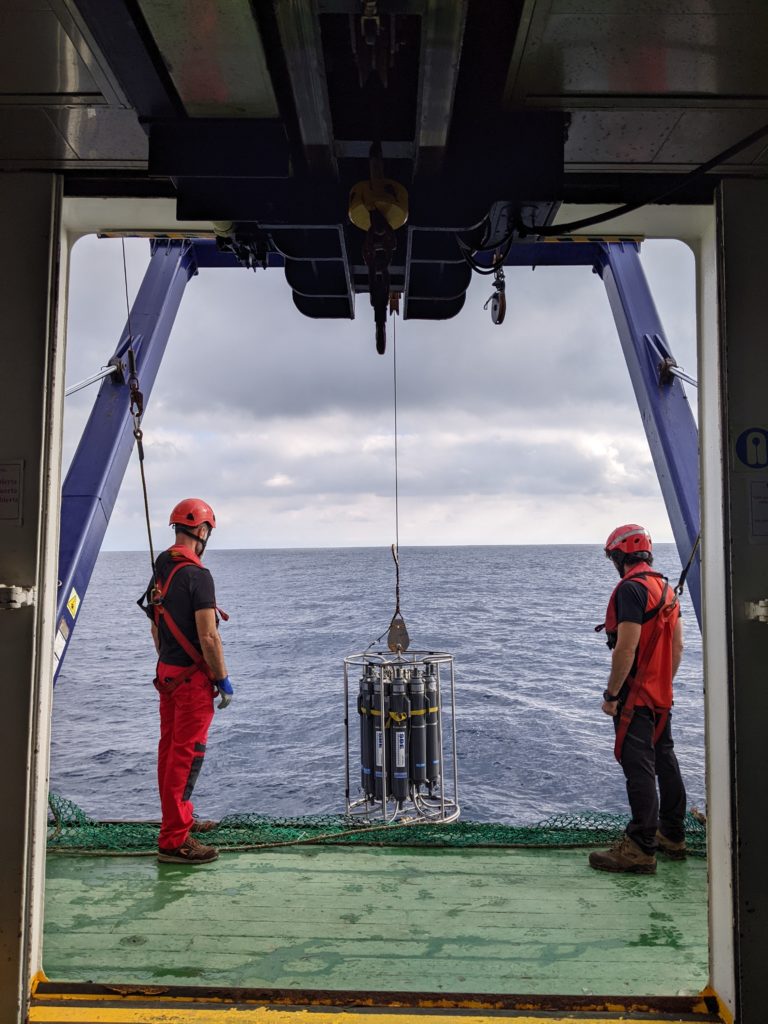
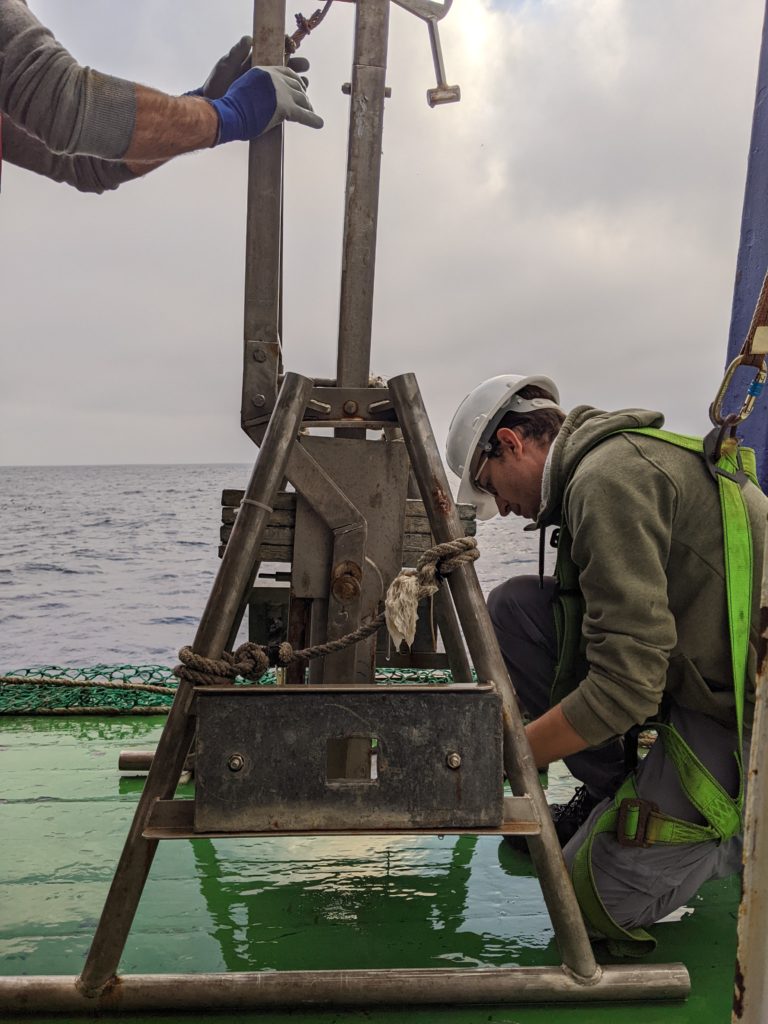
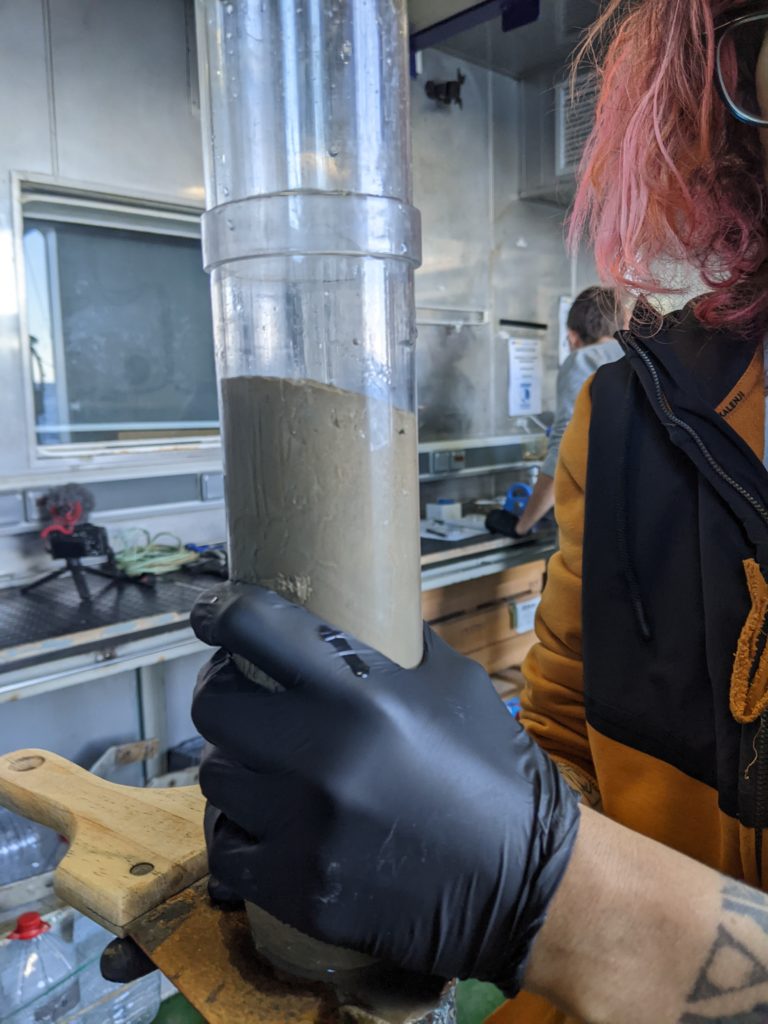
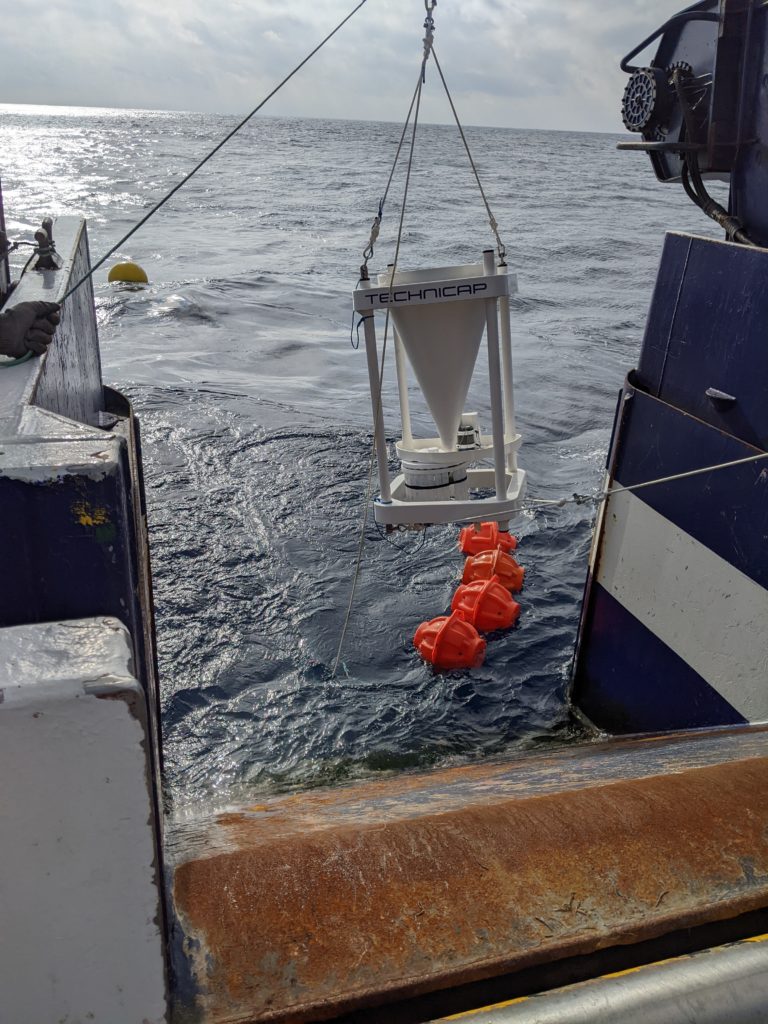

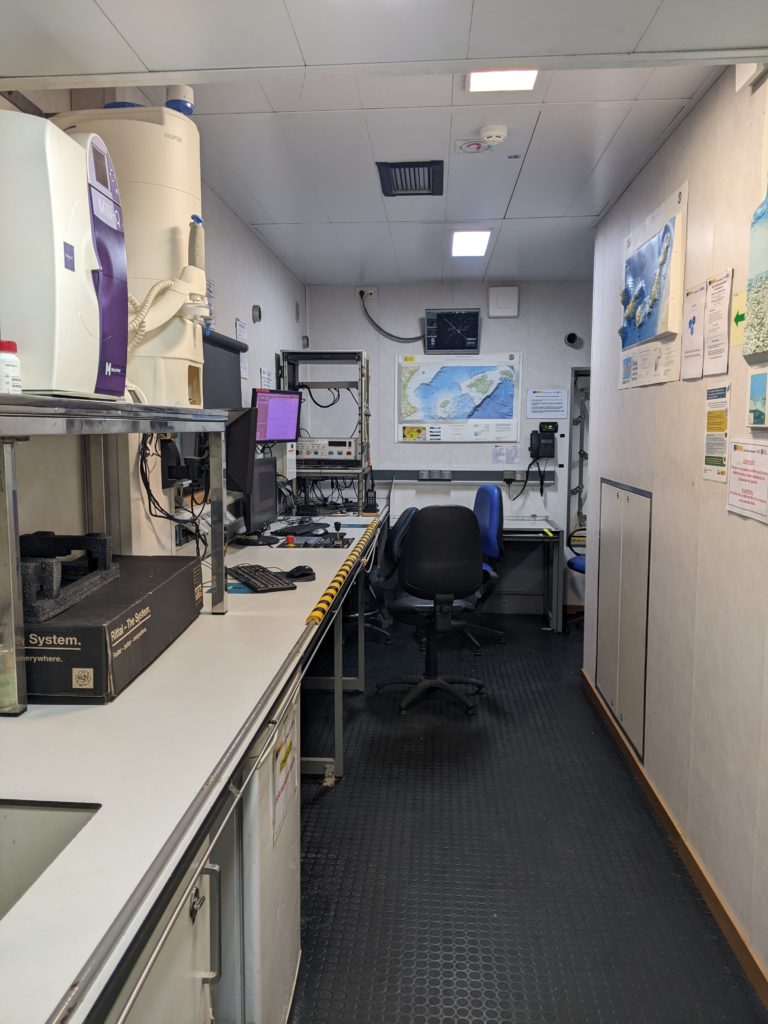
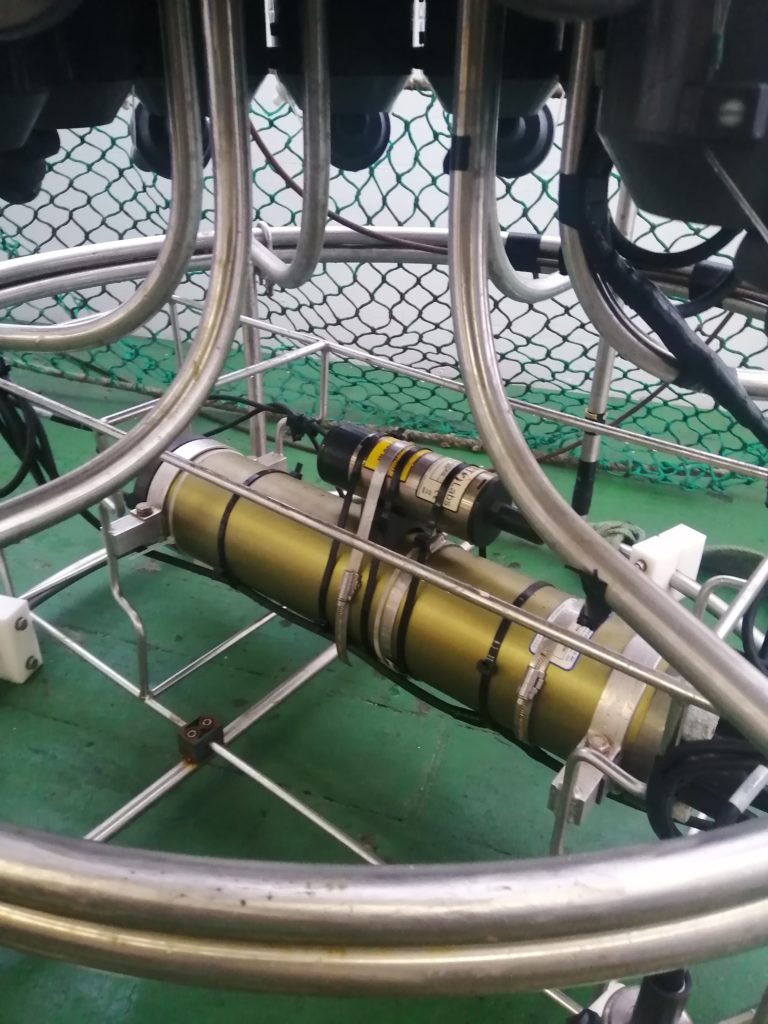
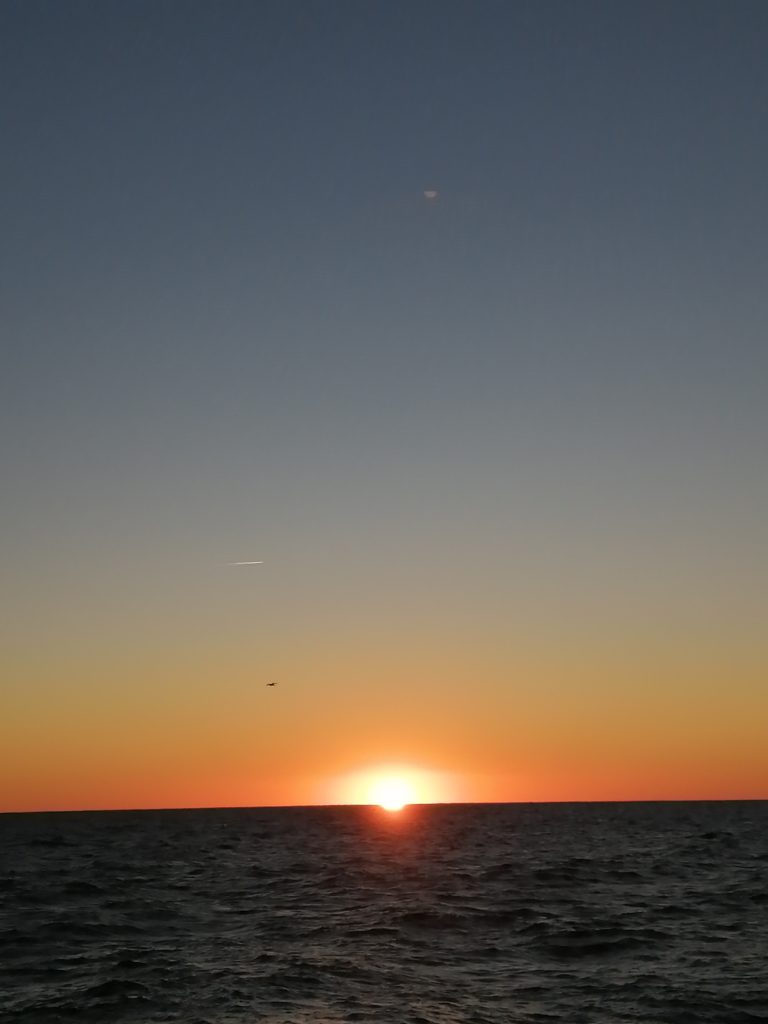
For our cruises, we count on the support from the FLOTA (https://www.ciencia.gob.es/Organismos-y-Centros/ICTS/CienciasMar/FLOTA.html) and the Unidad de Tecnología Marina (UTM): http://www.utm.csic.es/es/home
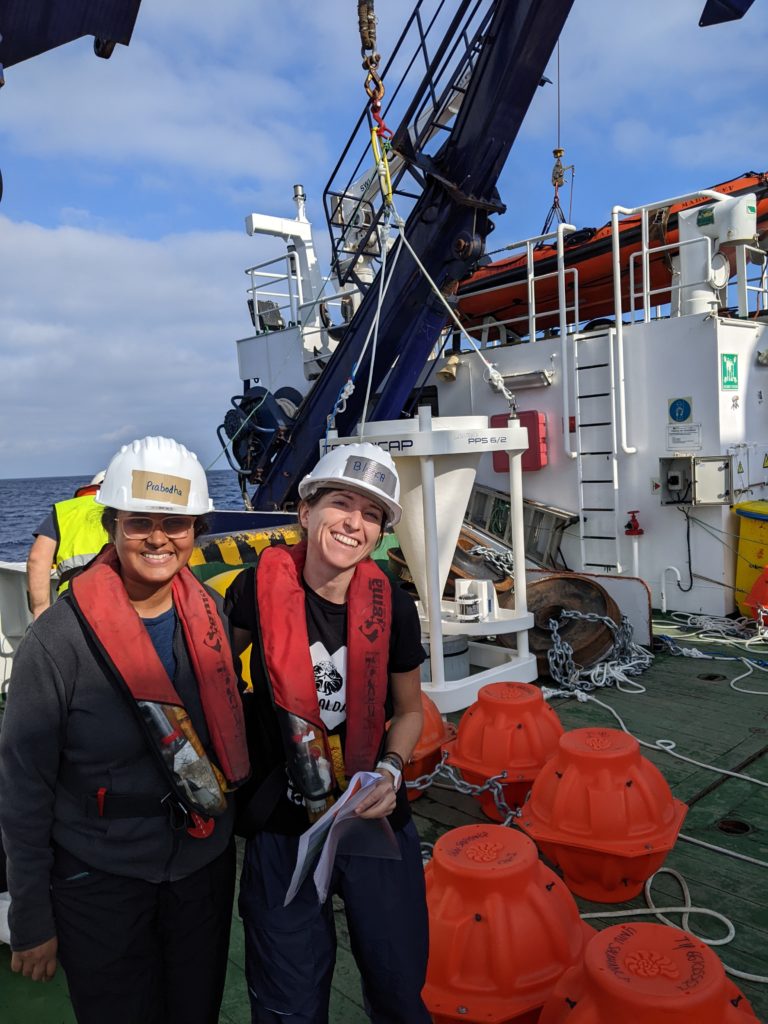
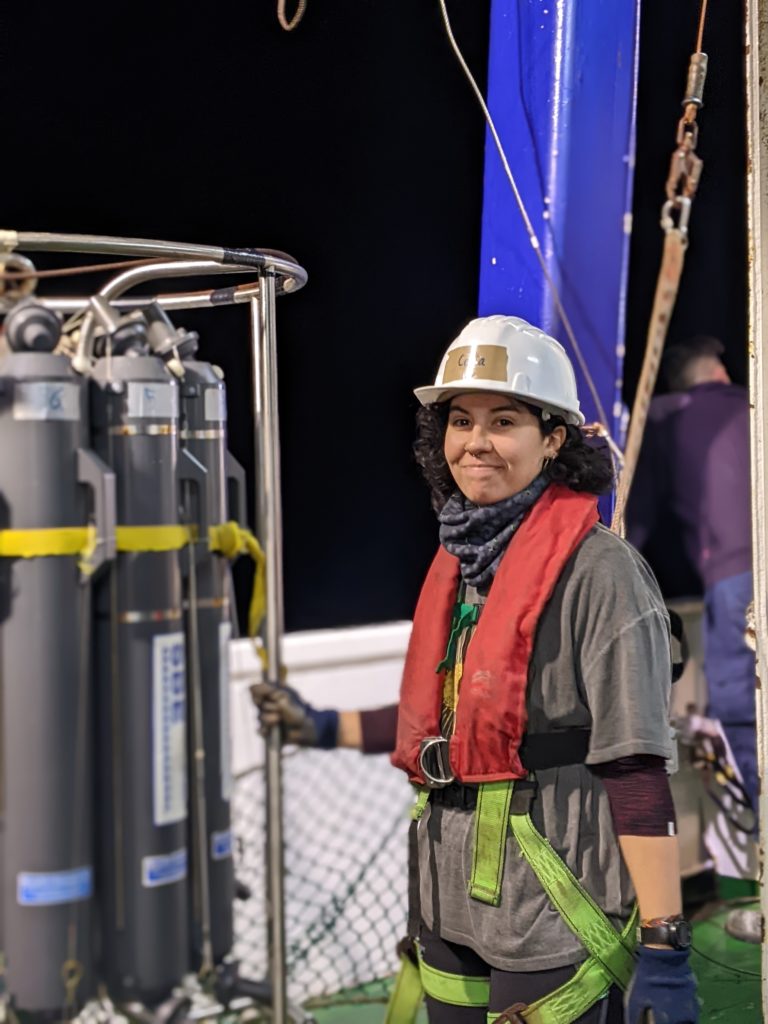
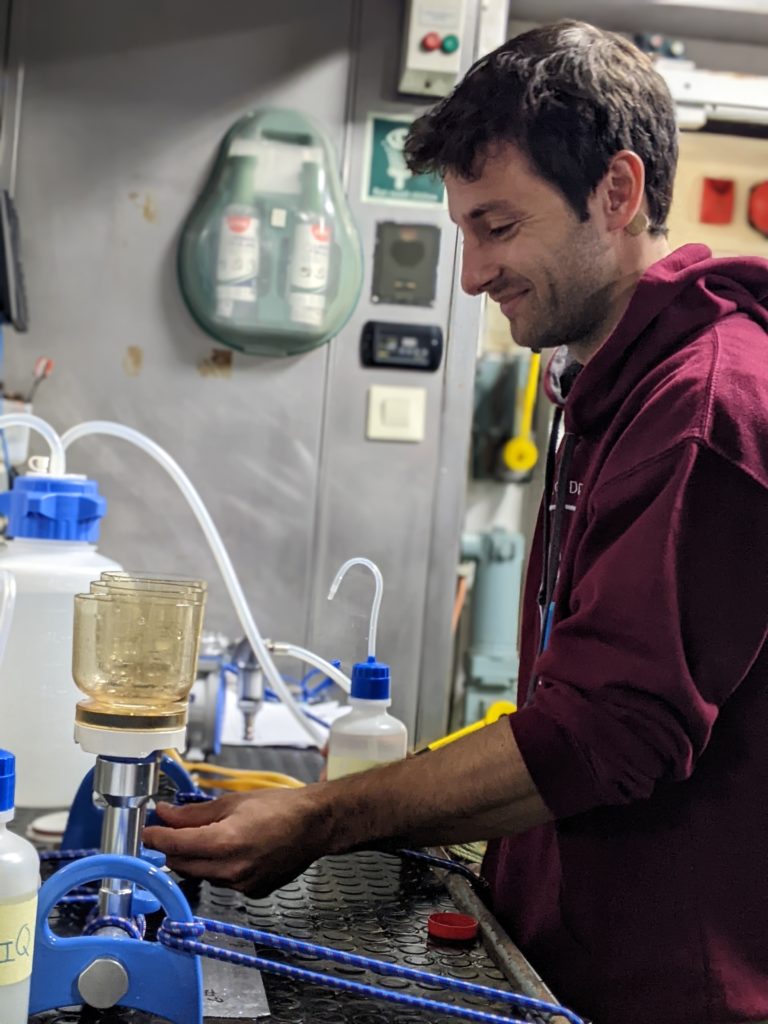
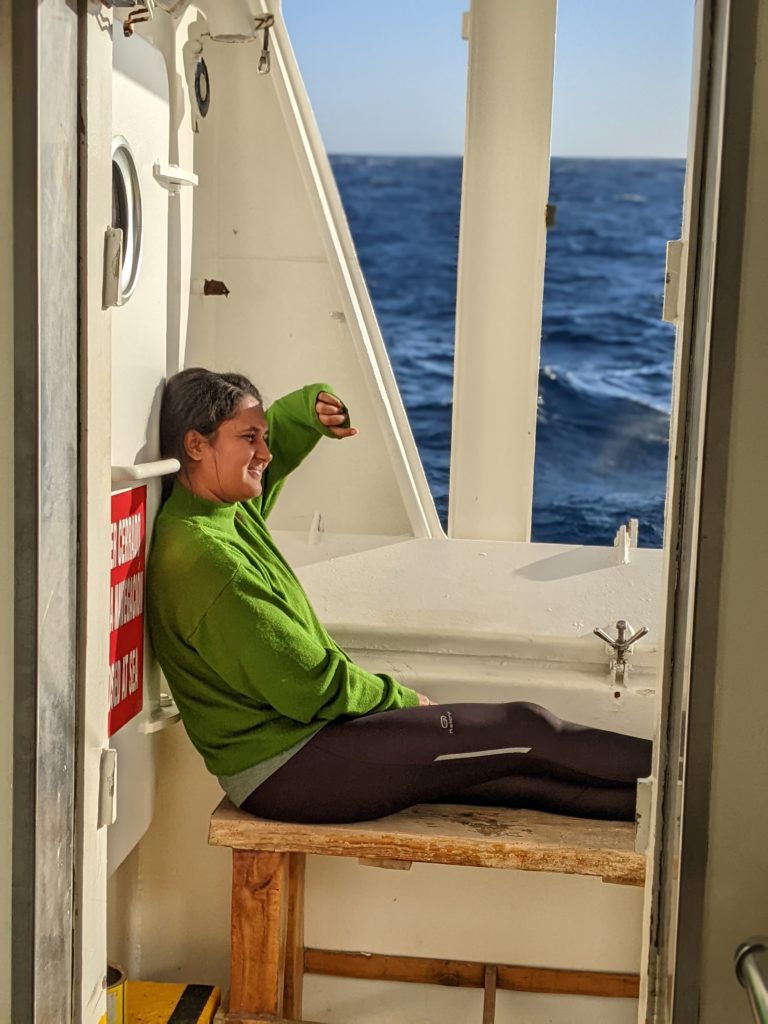
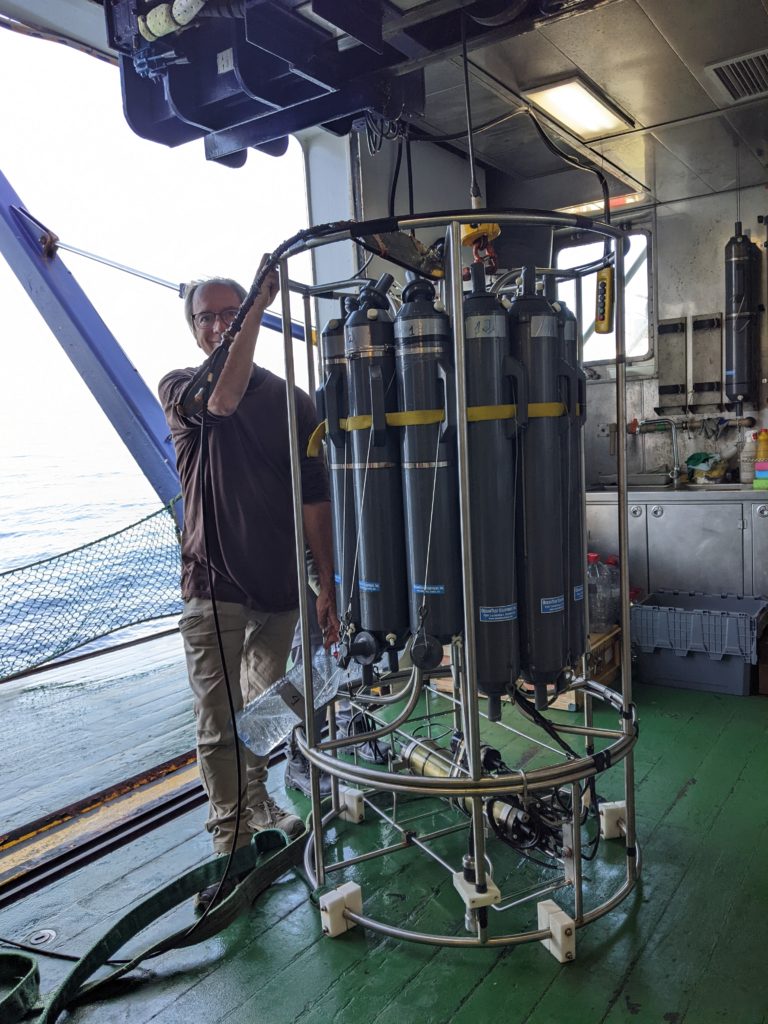
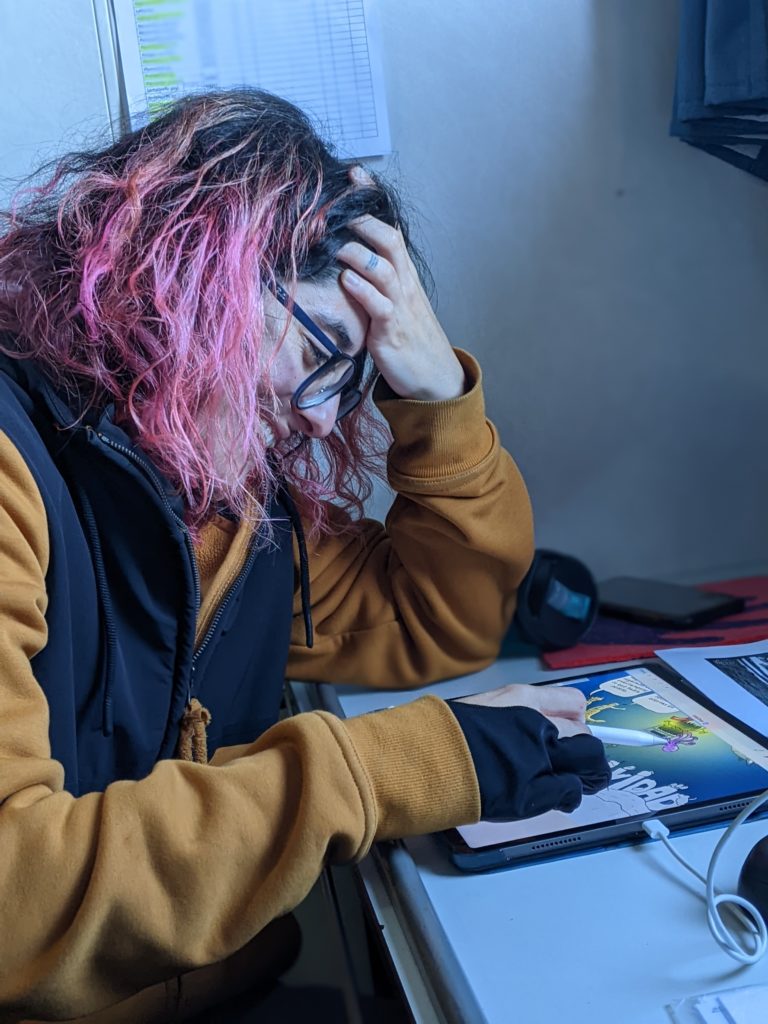
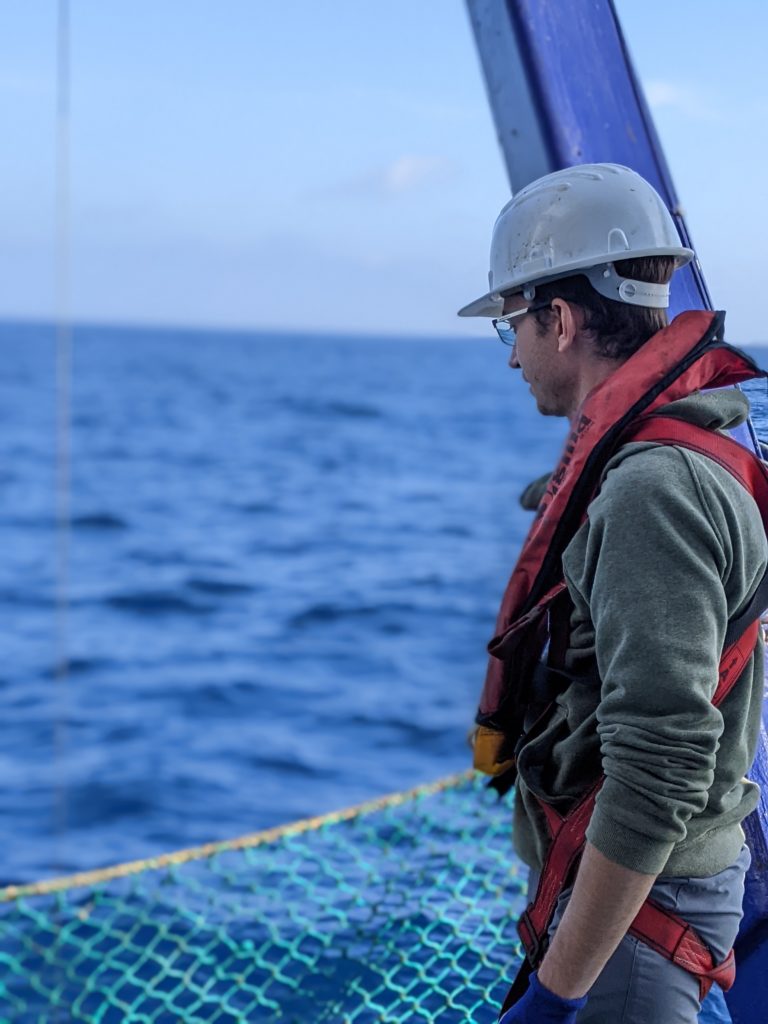
COMMEMORATING THE SUCCESS OF PASSAGE23
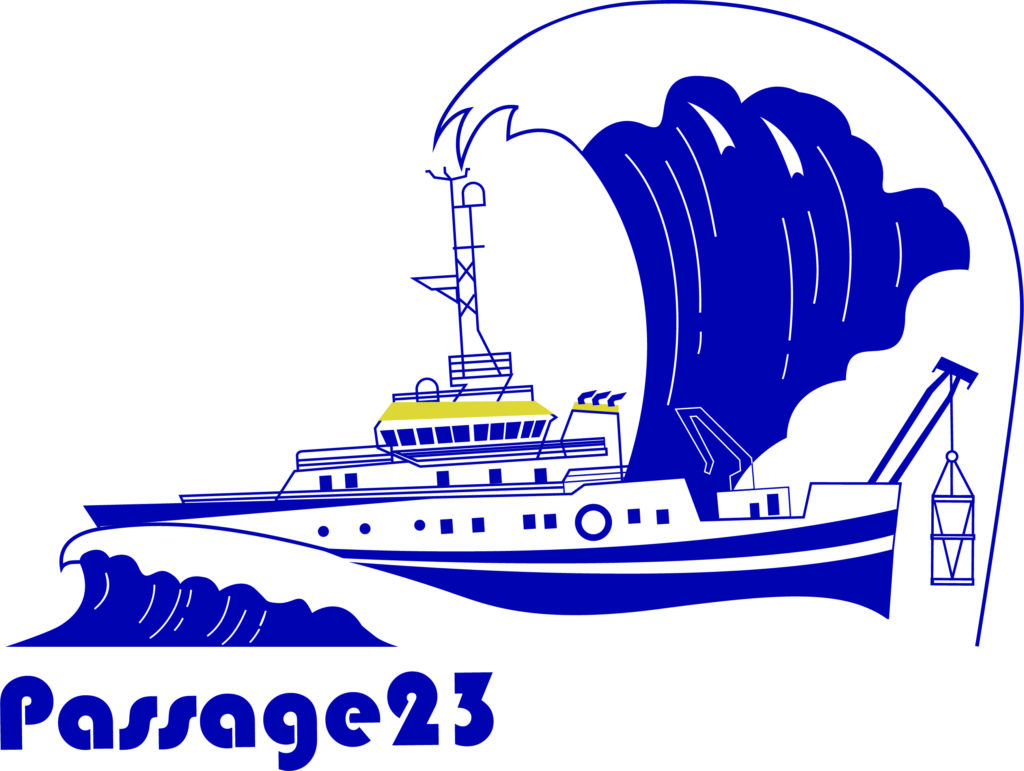
Cruise PASSAGE24: closing the cycle
The PASSAGE24 Science Party sailed onboard R/V Ángeles Alvariño from the 16th to the 23rd of December 2024 with one mission in mind: to retrieve the two mooring lines they deployed in November 2023.
Under adverse maritime weather conditions, we found the necessary meteorological window to successfully recover the instrumentation that had been moored for a year. We returned home with precious samples and data, wishing to unravel the unprecedented information they contain.
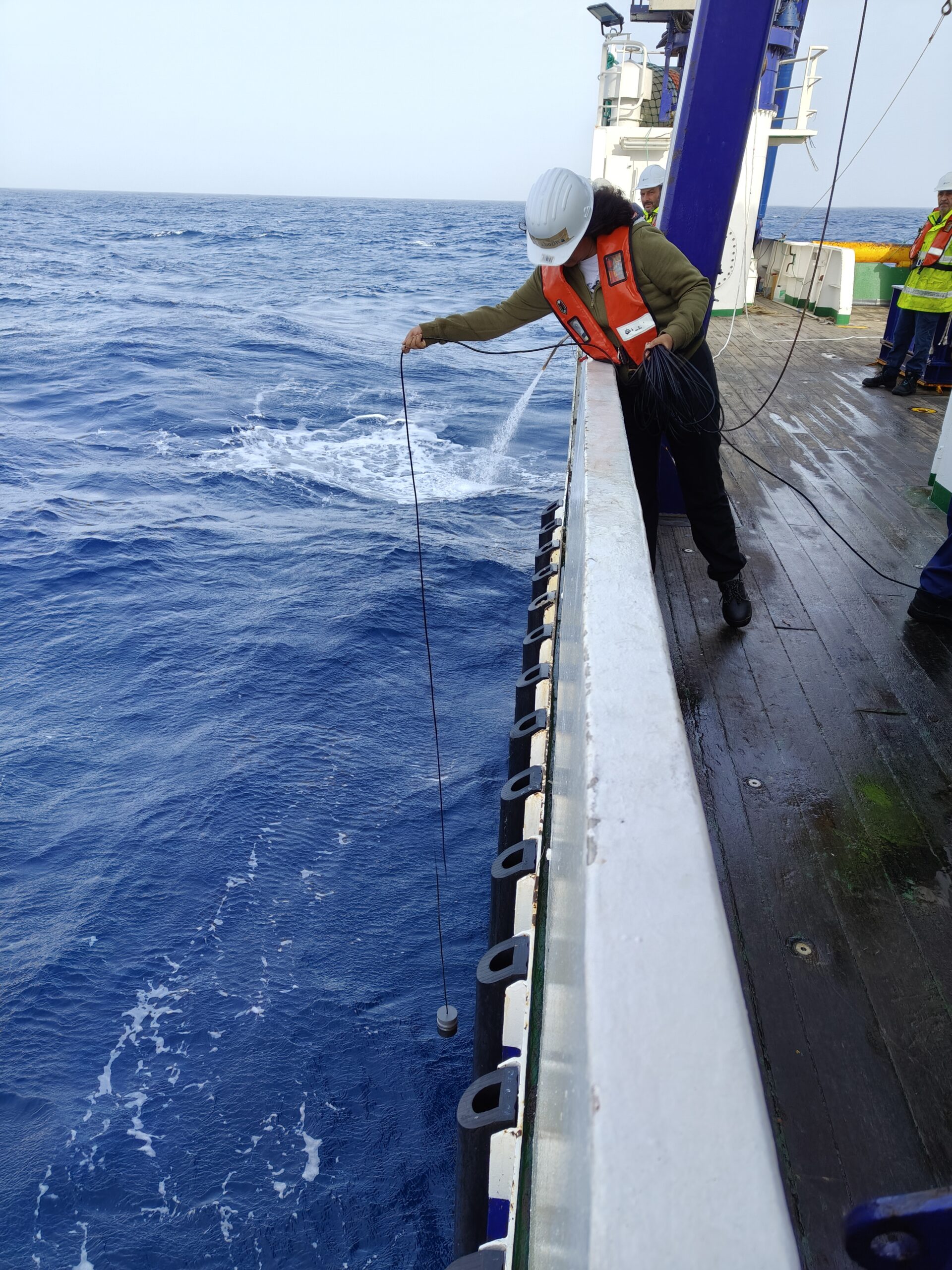
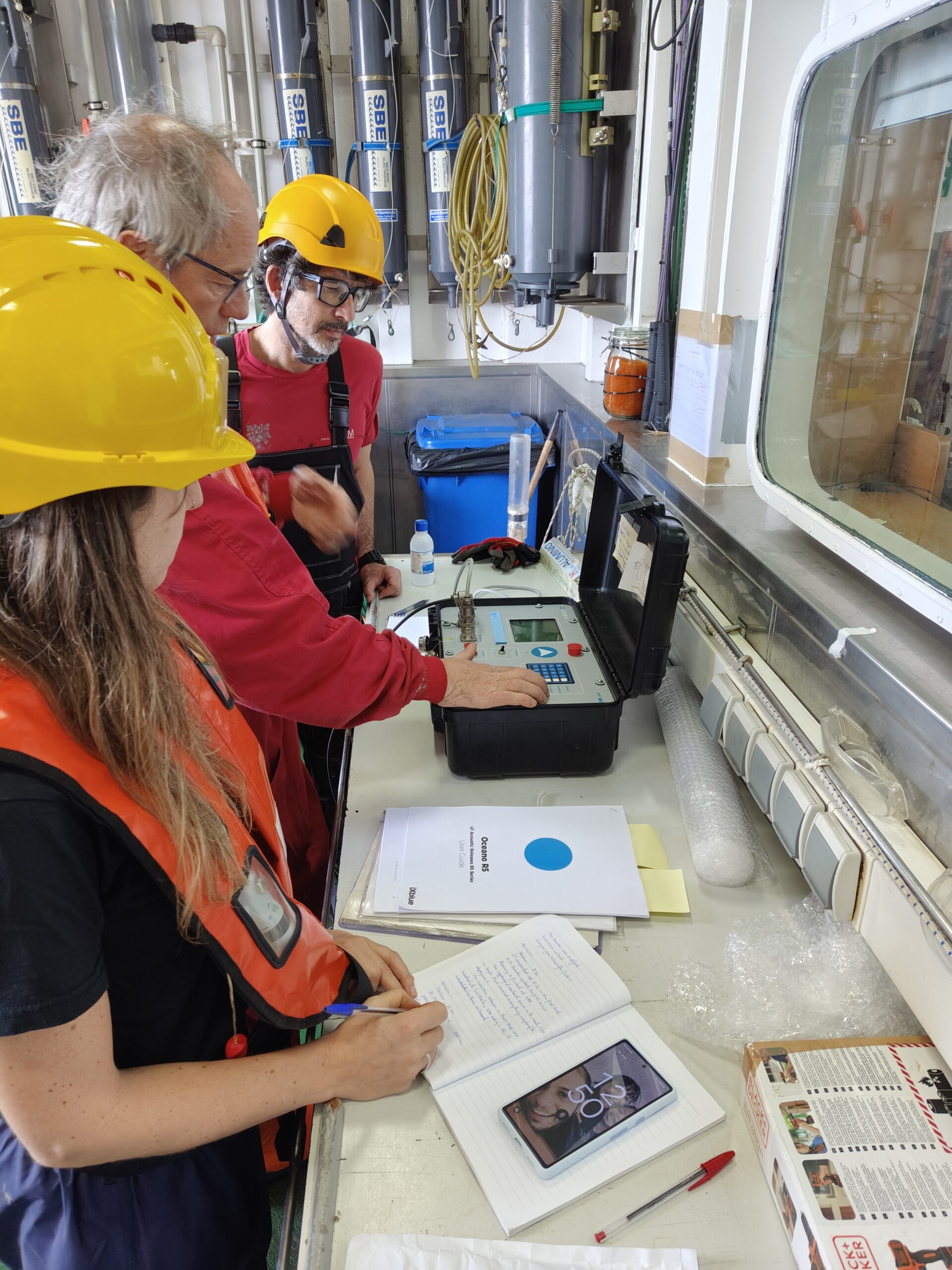
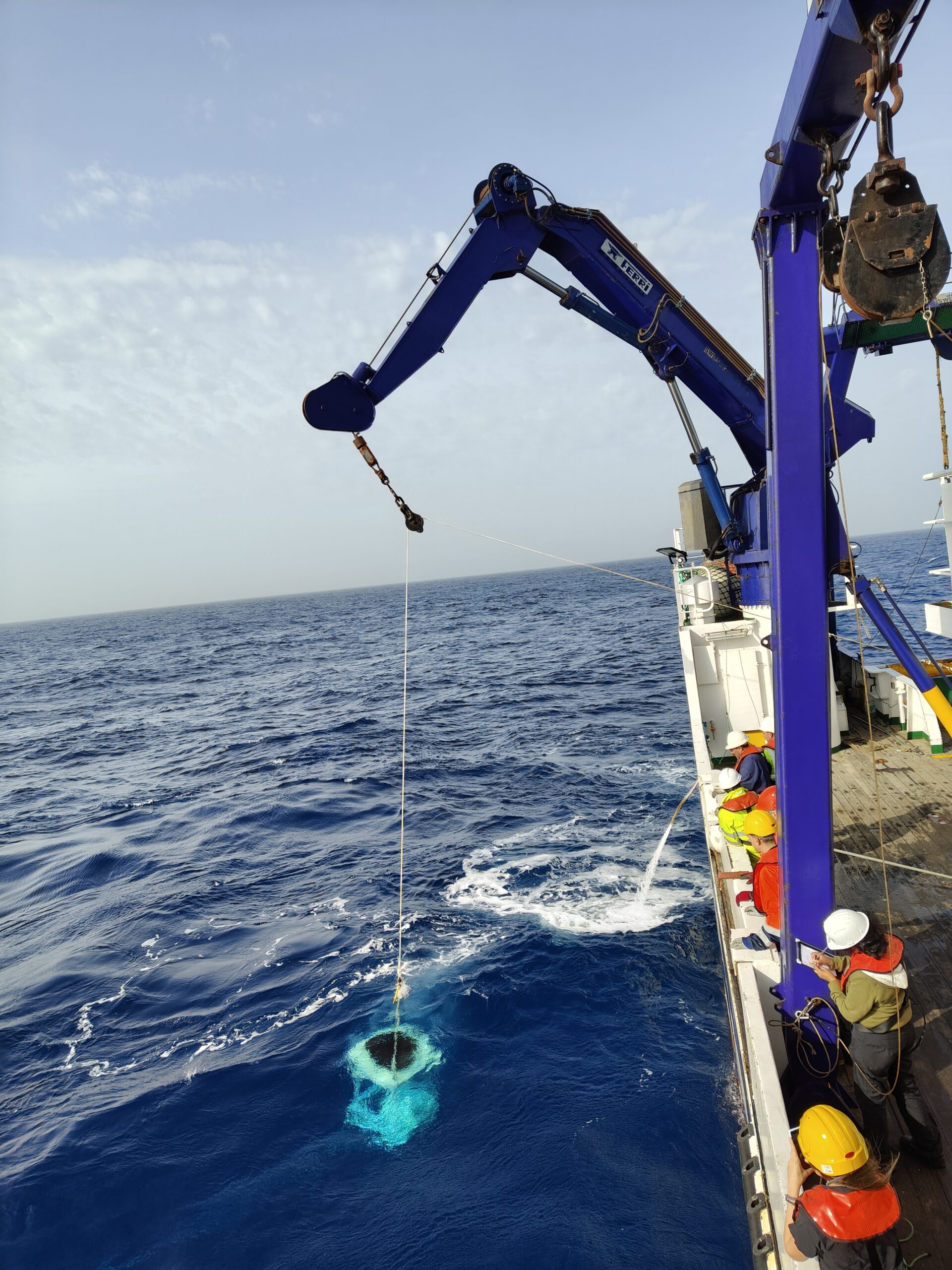
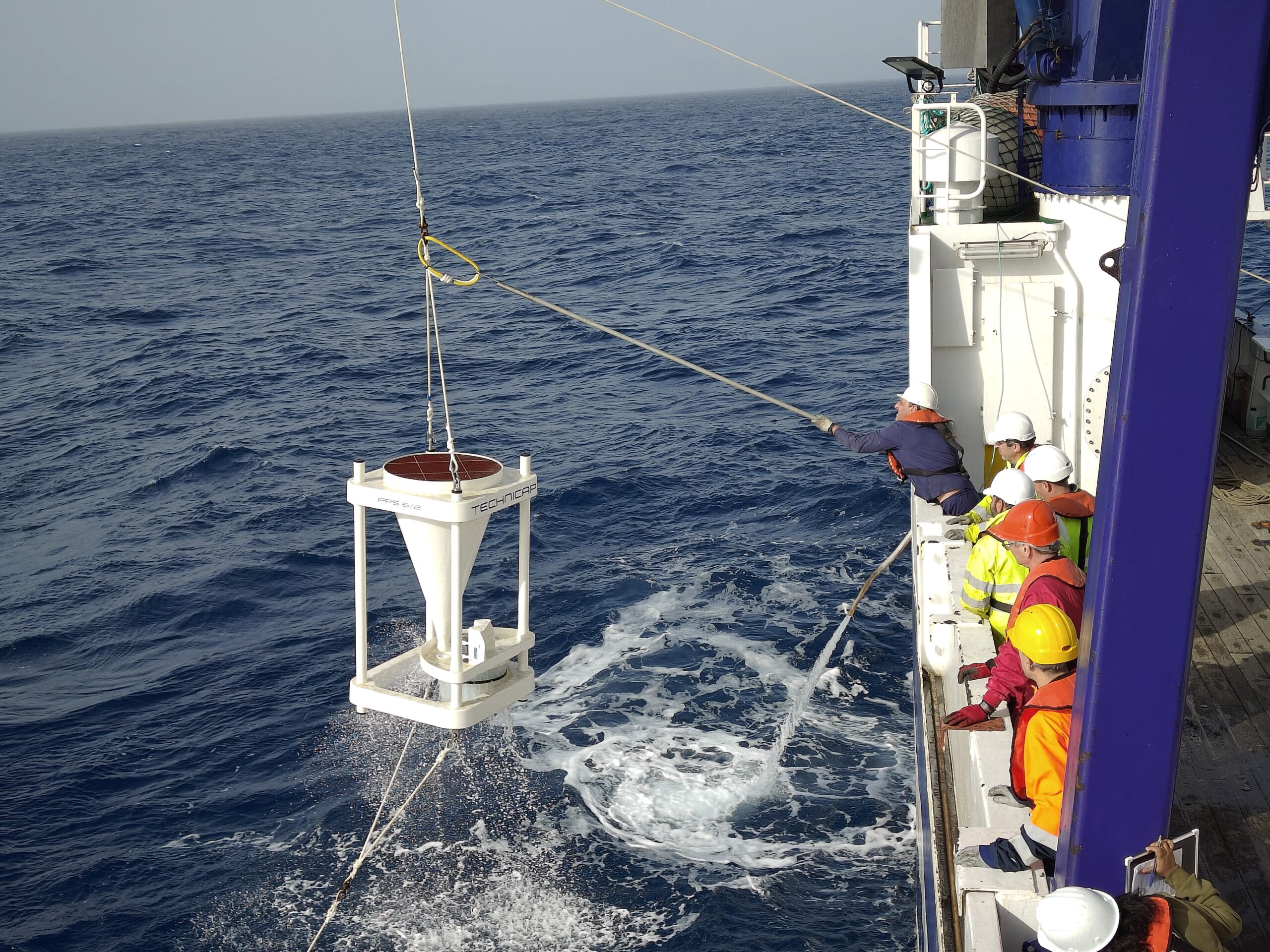
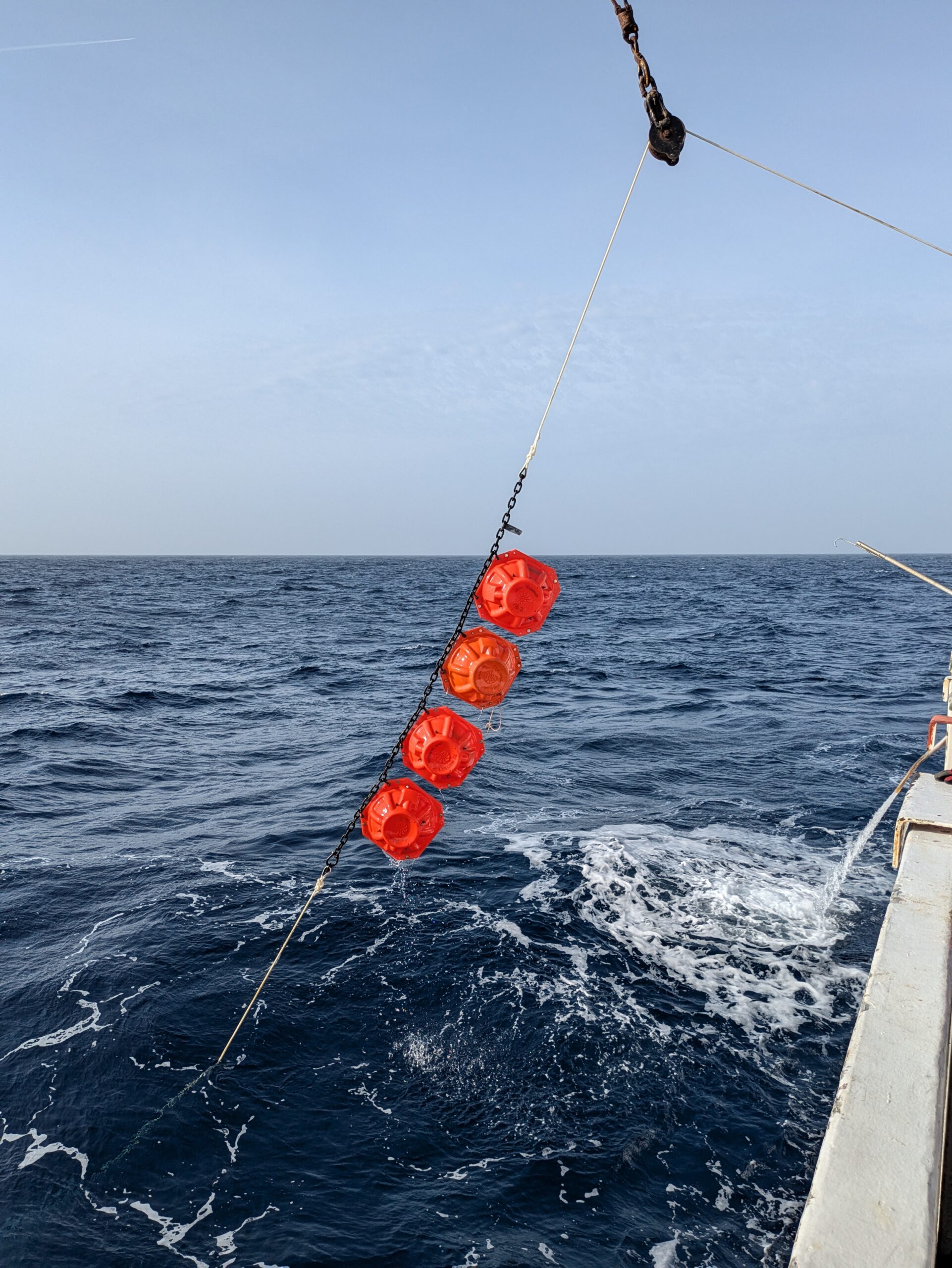
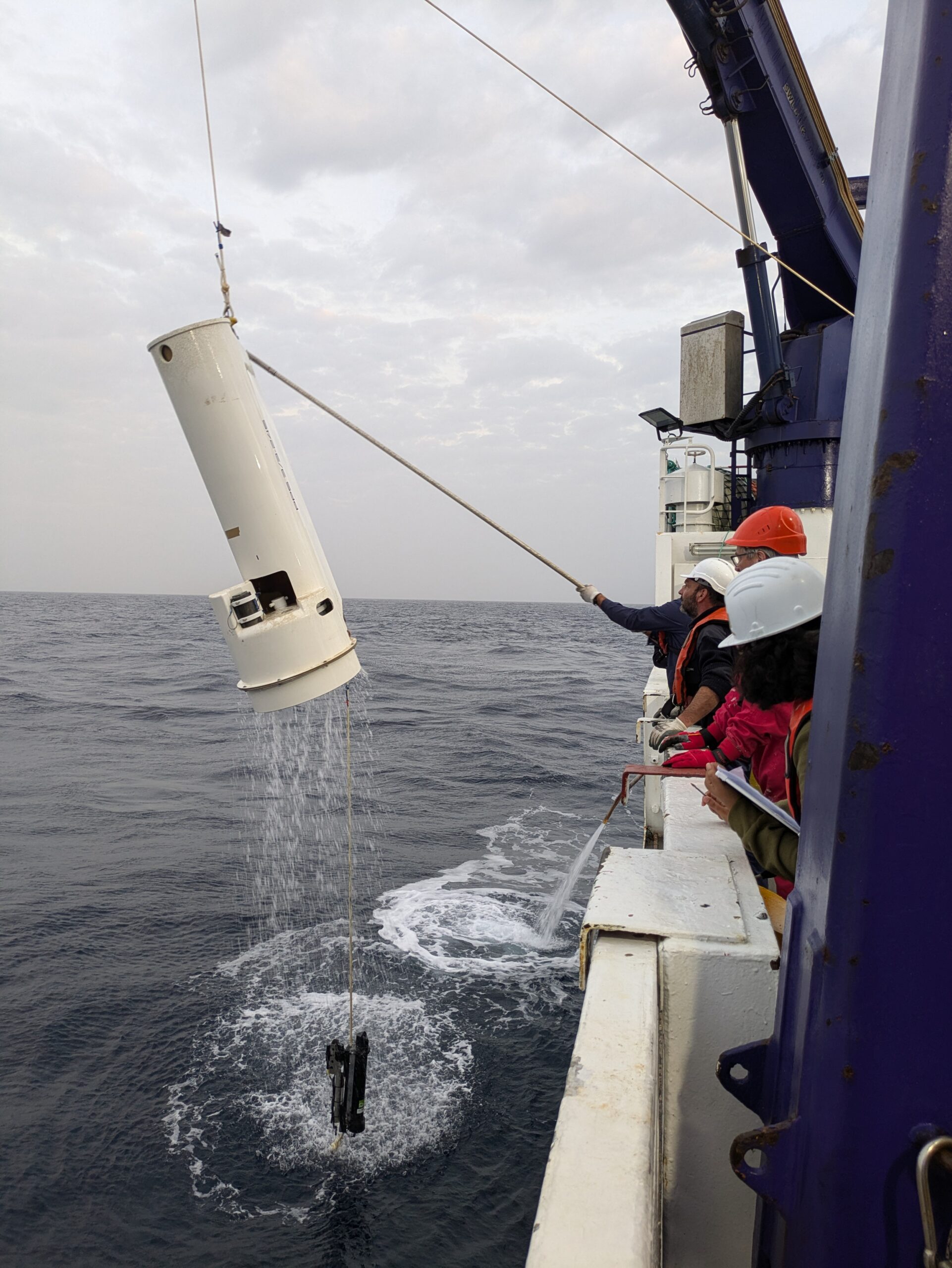
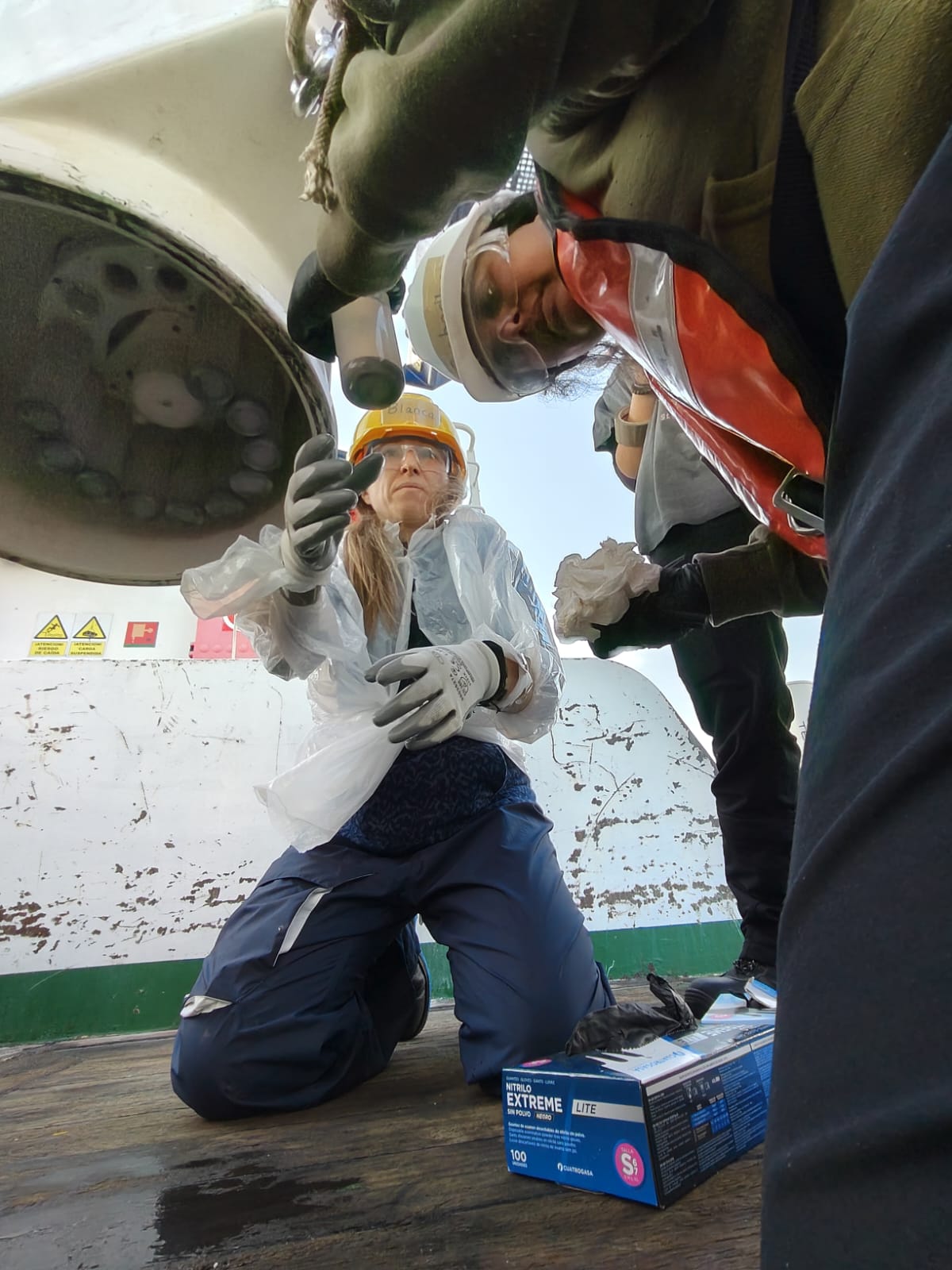
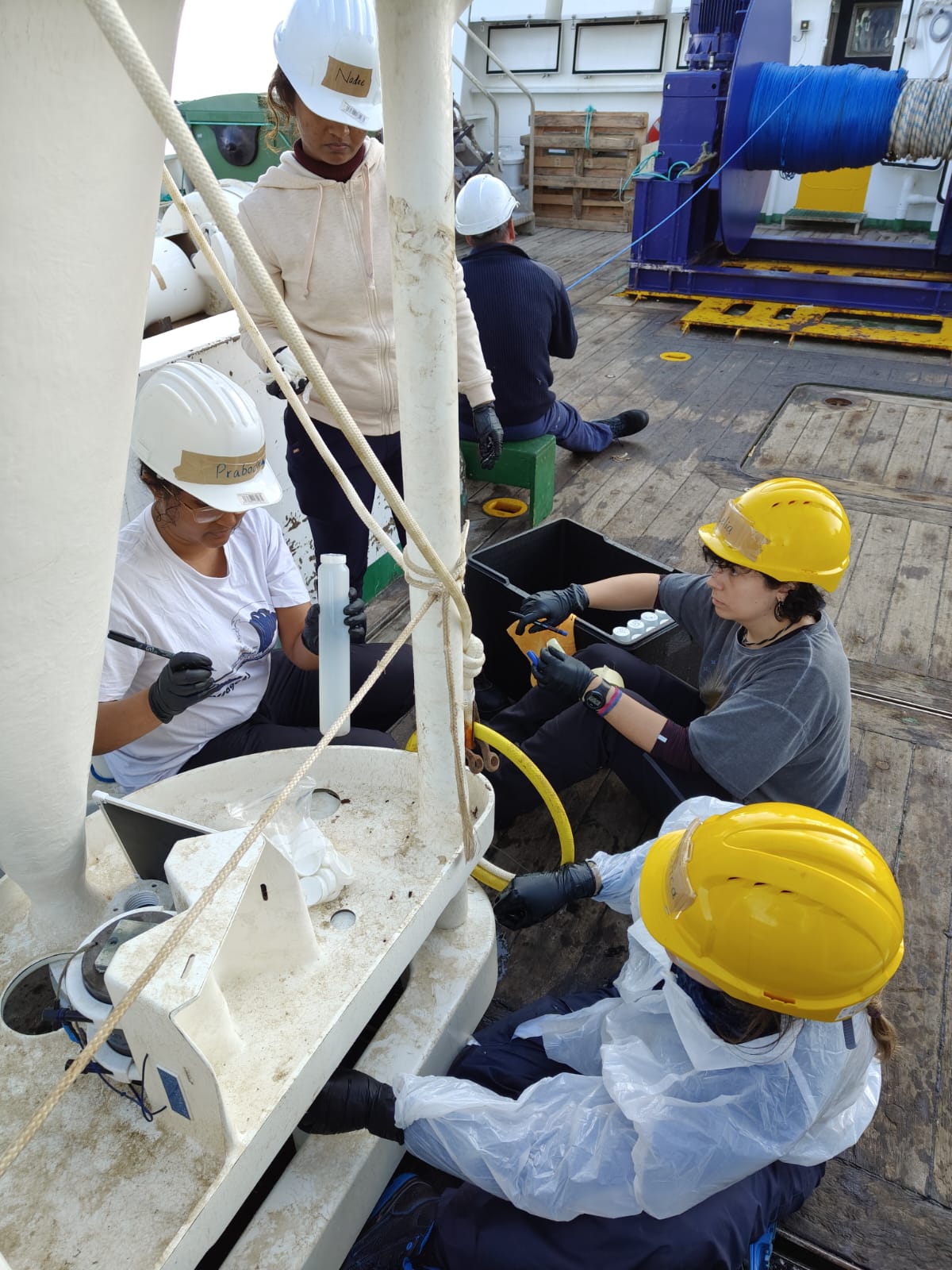
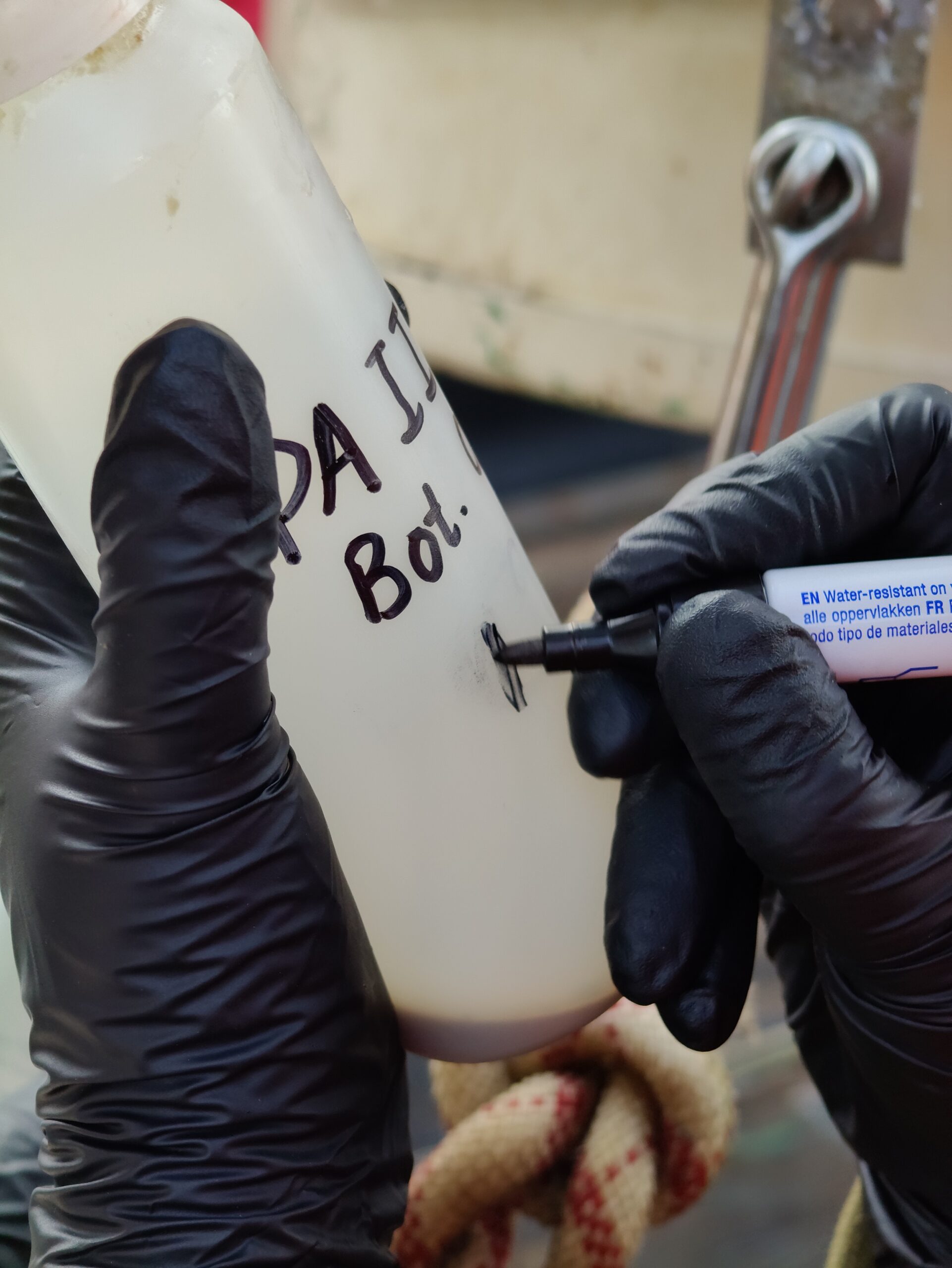
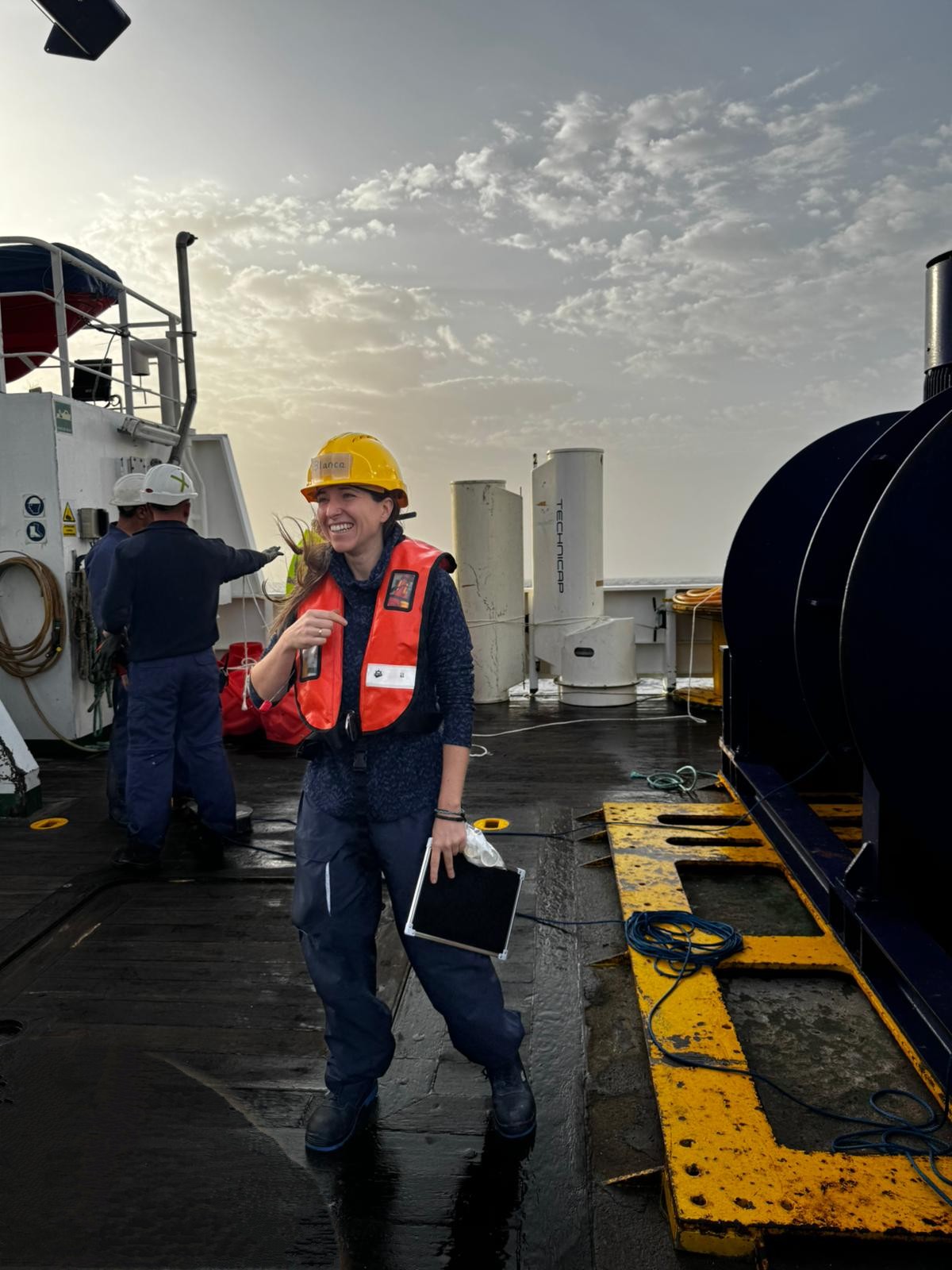
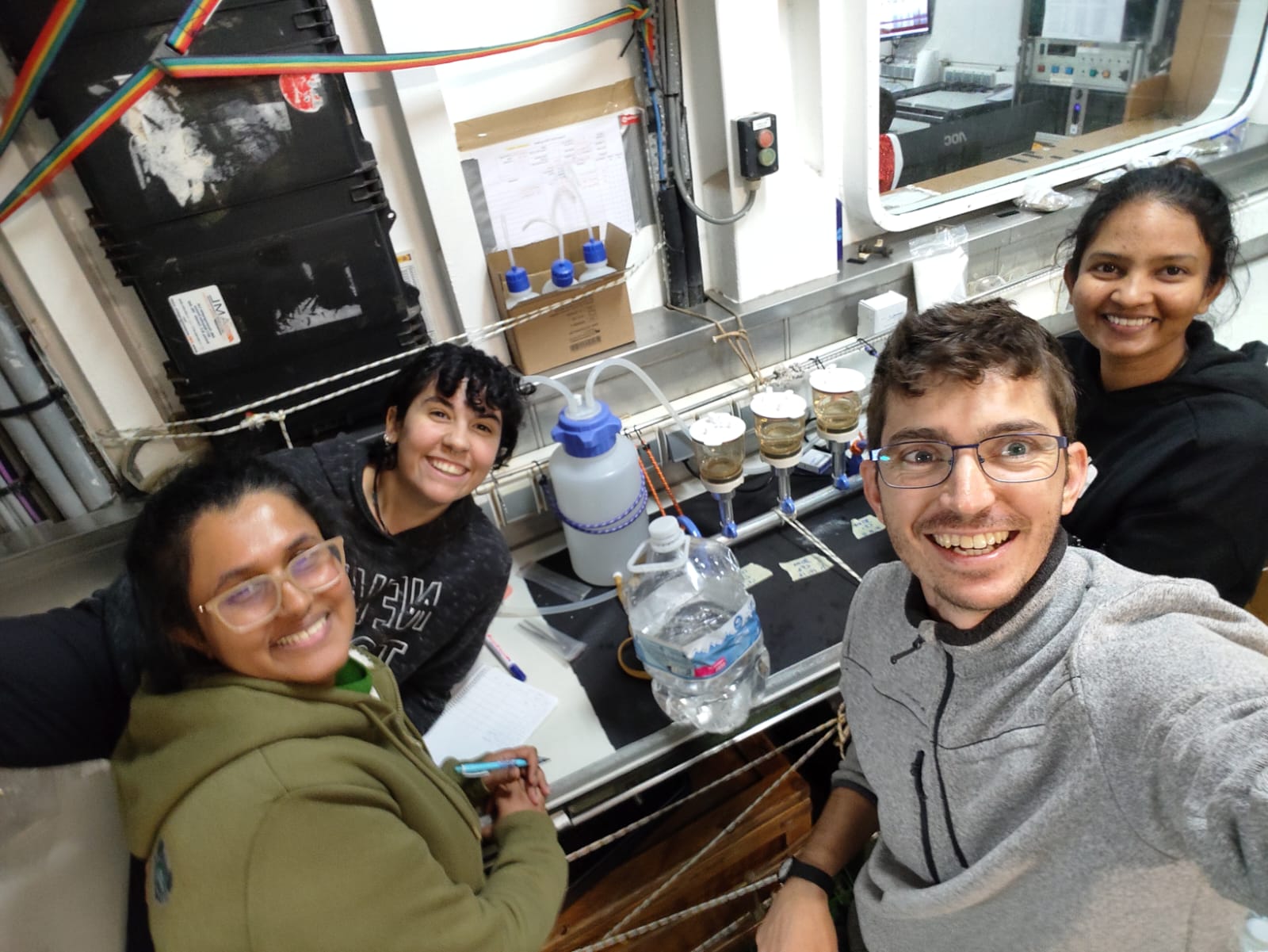
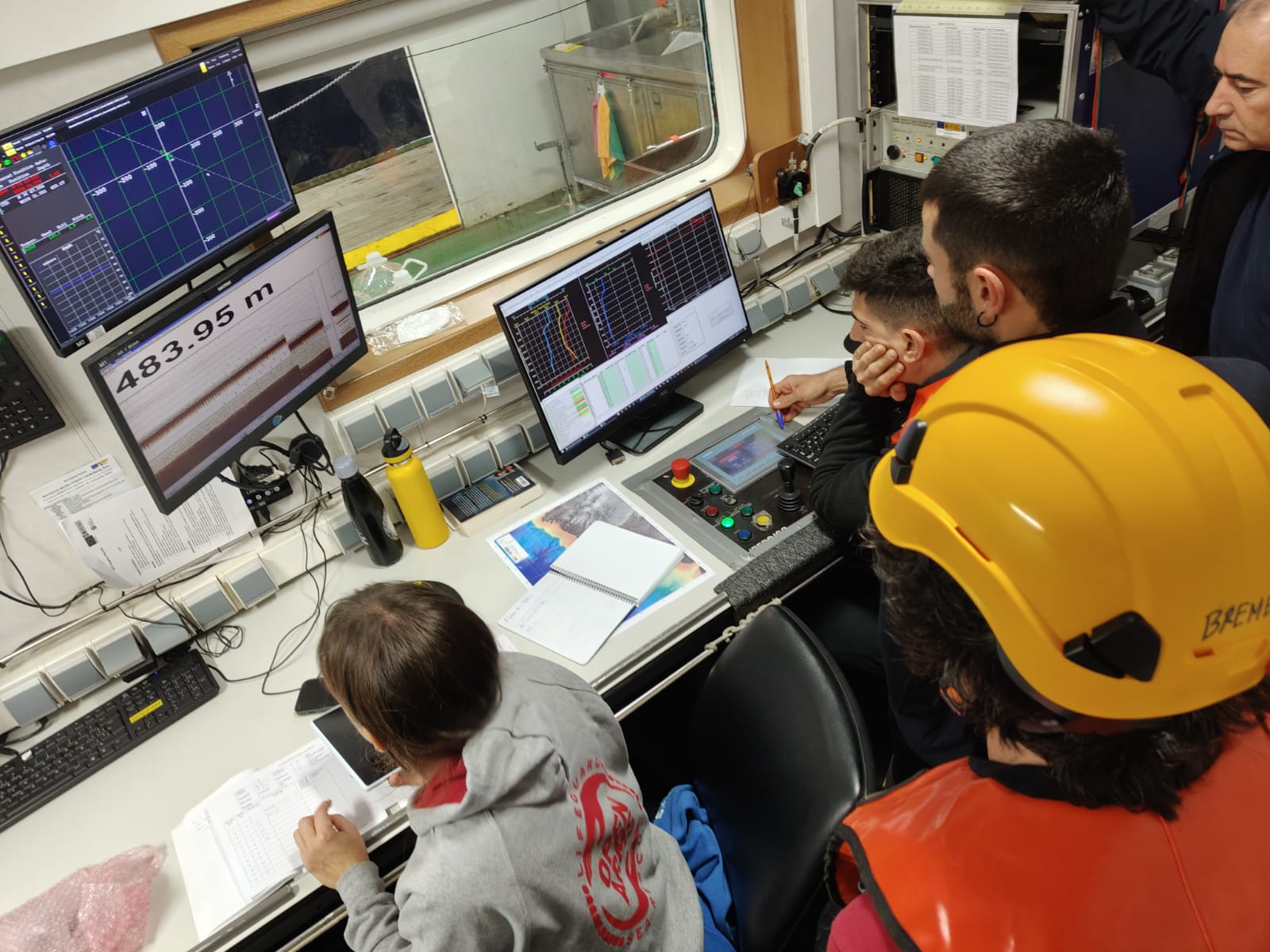
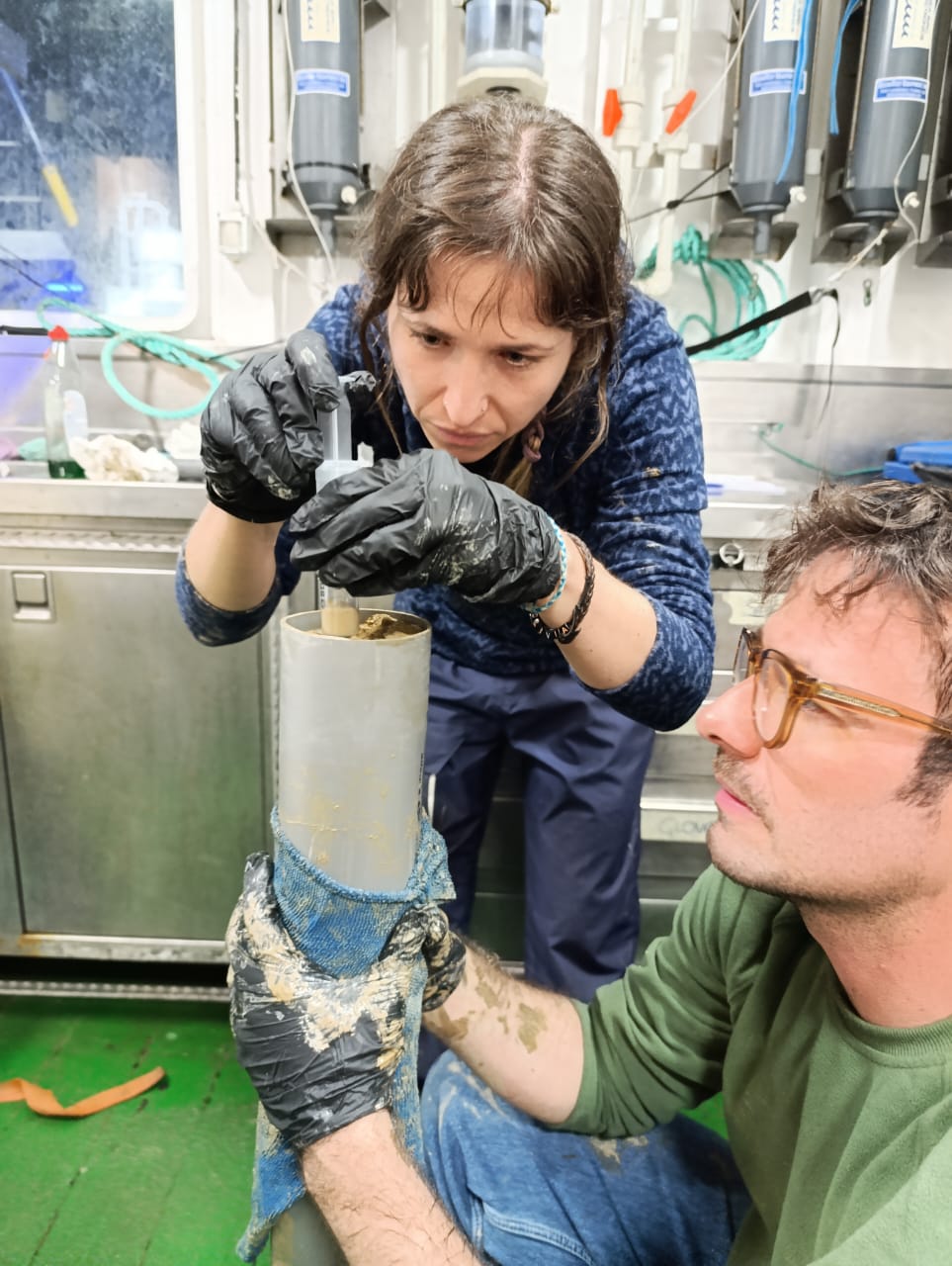
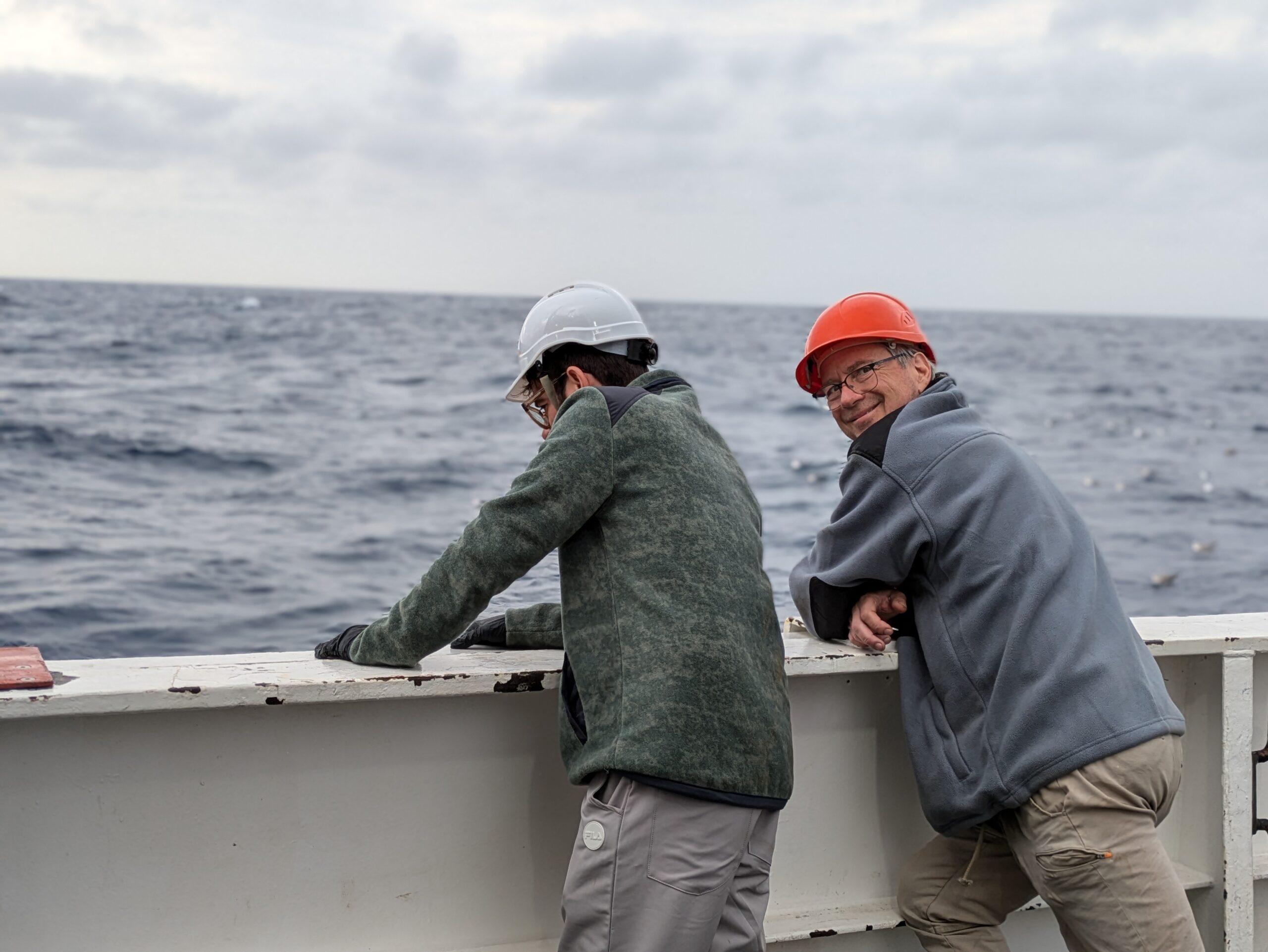
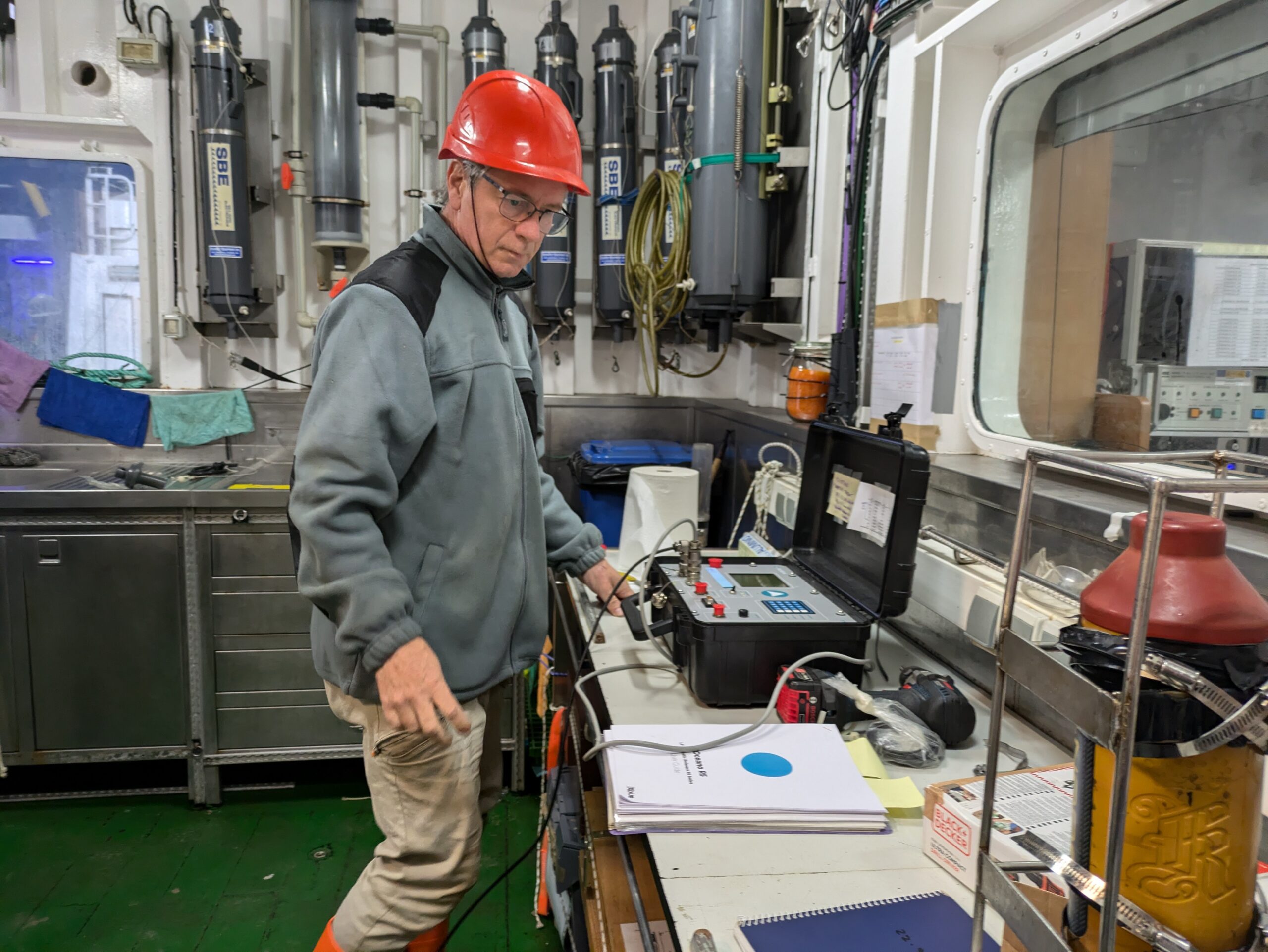
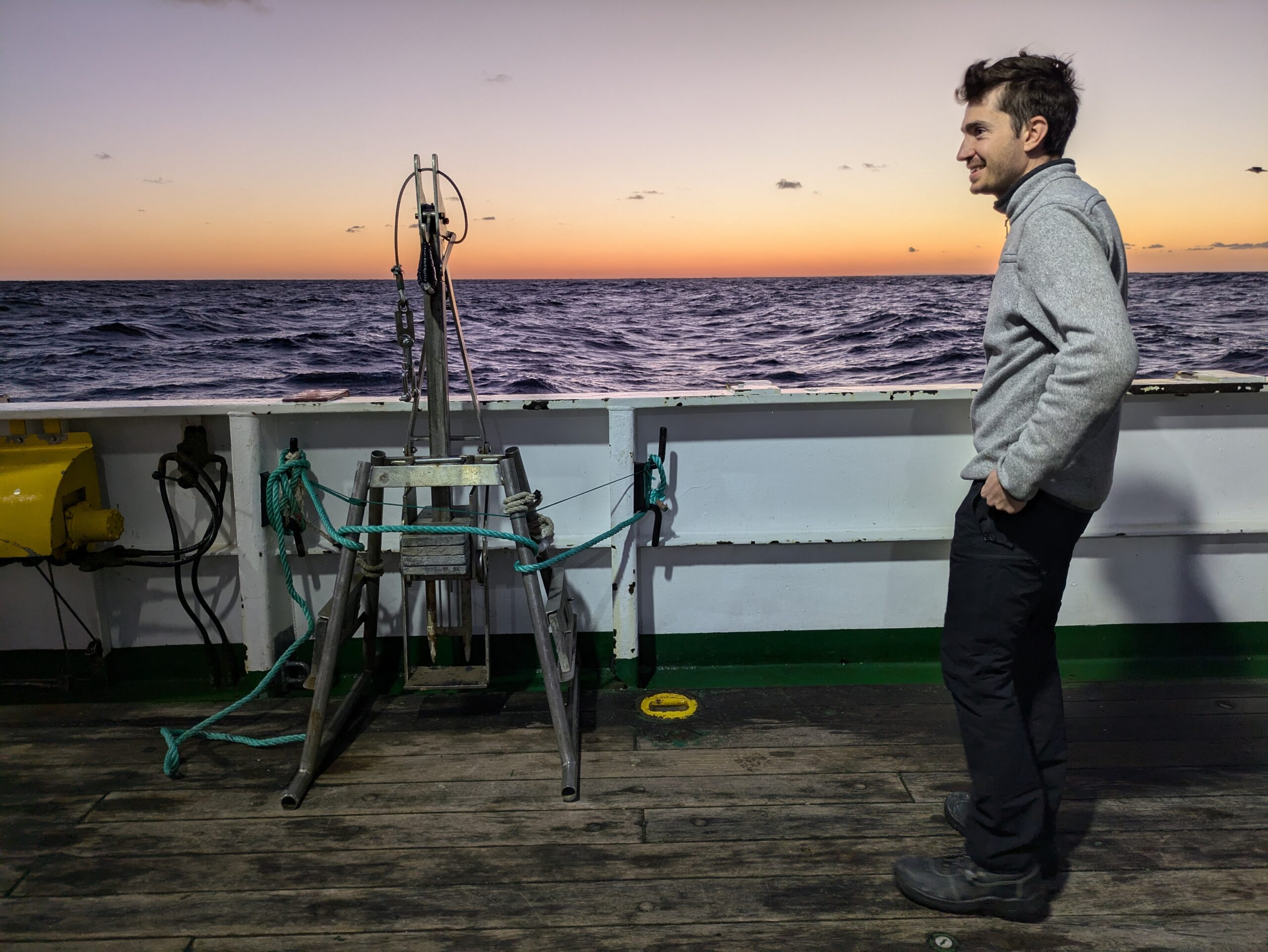
For our cruises, we count on the support from the FLOTA (https://www.ciencia.gob.es/Organismos-y-Centros/ICTS/CienciasMar/FLOTA.html) and the Unidad de Tecnología Marina (UTM): http://www.utm.csic.es/es/home
